*FYI - this post may contain affiliate links, which means we earn a commission at no extra cost to you if you purchase from them. Also, as an Amazon Associate I earn from qualifying purchases. Check out our Privacy Policy and Disclosure. for more info.
Backpacking Europe for 1.5 months when I was 20 changed a lot of things for me.
There was of course my plumper waistline and newfound devotion to Belgian beer, but more importantly, I had some pretty big epiphanies about traveling and money.
Now, don’t get me wrong – traveling is a huge expense, but for the longest time, I always saw it as impossibly expensive.
I never knew that there were alternatives to hotels, I didn’t know it was possible to cook for yourself, and genuinely, I thought airplanes were the only way you could travel places.
Thankfully, I picked up a lot of tips and tricks along the way, and much wiser for it. I may no longer be a backpacker, but I did it for years and picked up plenty of golden tips for backpacking in Europe along the way.
So, here are some of my best travel tips for backpacking Europe, divided into helpful categories.
In this post, I’ll be sharing:
- My top travel planning tips for backpacking Europe
- How to save money on food and drink when backpacking in Europe
- How to save money on attractions when backpacking in Europe
- Safety tips for backpacking Europe
- Packing tips for backpacking Europe
- Other random handy tips for backpacking Europe
I hope you find it all helpful!
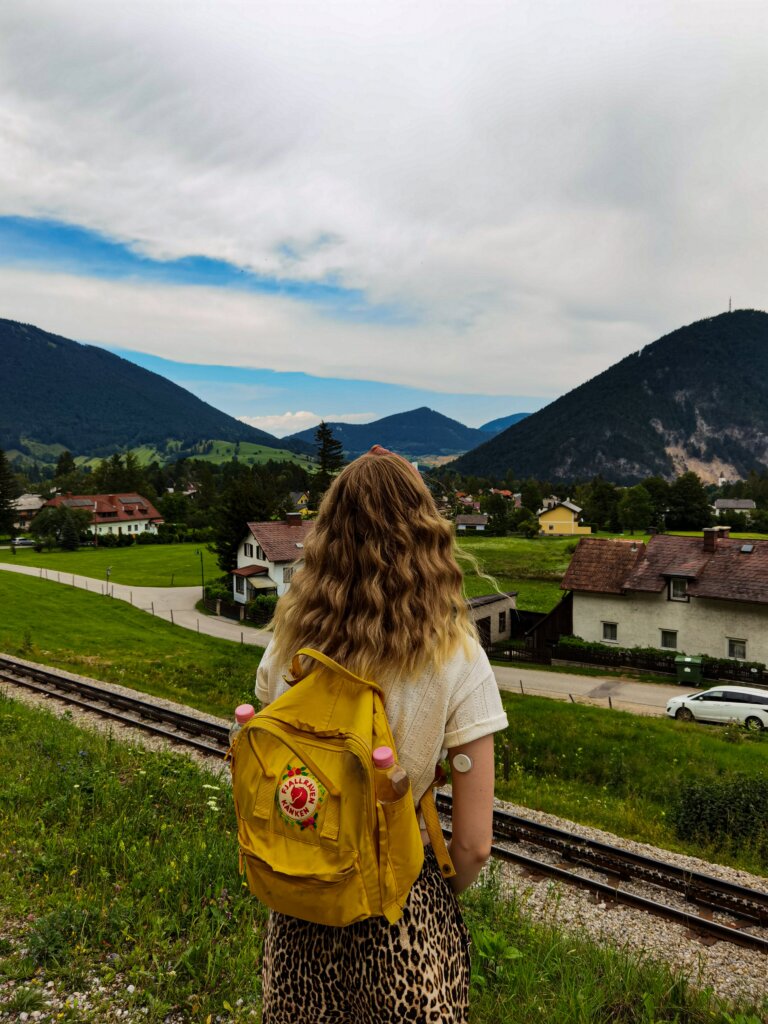
Travel Planning Tips for Backpacking Europe
First, let’s tackle Europe backpacking tips to keep in mind before you leave – i.e. when you are planning your trip with tips for planning your itinerary, flights, and accommodation.
Understand the Schengen Zone and how long you’re allowed to stay in Europe
There’s a common misconception among first-time backpackers that all of Europe has open borders, or that you can stay as long as you want.
This is not the case.
The area in Europe with free movement is known as the Schengen Zone, and includes:
- Austria
- Belgium
- Czech Republic
- Denmark
- Estonia
- Finland
- France
- Germany
- Greece
- Hungary
- Iceland
- Italy
- Latvia
- Liechtenstein
- Lithuania
- Luxembourg
- Malta
- Netherlands
- Norway
- Poland
- Portugal
- Slovakia
- Slovenia
- Spain
- Sweden
- Switzerland
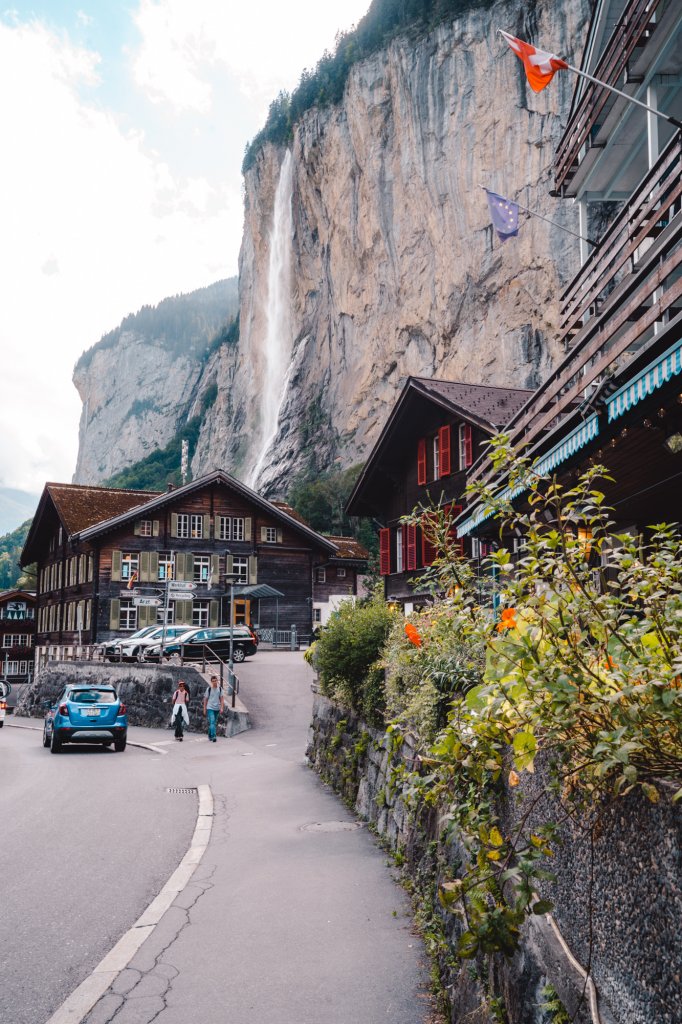
How long you can stay depends on the kind of visa you have, but for Canadians and Americans for example, your allowance is 90 days within a 180 day period.
This is kind of confusing, but the simplest way to look at it is: if, by the time you fly home, you have not stayed more than 90 days in the Schengen Zone in the past 180 days, you’re good. Anything more, and you risk getting fined or (at worst) blacklisted from the Schengen Zone.
So how long can you really backpack Europe for without getting a longer-term visa?
Honestly, if you’re crafty with your Schengen Zone allowances, you can even stay indefinitely so long as you alternate between Schengen and non-Schengen Zone countries.
Non-Schengen Zone countries include:
- Albania
- Armenia
- Azerbaijan
- Belarus
- Bosnia & Herzegovina
- Bulgaria
- Croatia
- Cyprus
- Georgia
- Ireland
- Kosovo
- North Macedonia
- Moldova
- Montenegro
- Romania
- Russia
- Serbia
- Turkey
- Ukraine
- United Kingdom
So, to stay long term, you could do 90 days in the Schengen Zone, hop around non-Schengen countries (e.g. maybe a Balkans tour!) for 90 days and then re-enter the Schengen Zone.
NOTE: It is very important to note that your Schengen allowance doesn’t reset once you leave. Again, the best way to look at it is to see whether in the past 180 days, you’ve spent more than 90 days in the Schengen Zone.

Don’t try to cover the entire continent in one trip
Unless you’re devoting months or years to your Europe backpacking trip, there’s no way you can cover the entire continent in one go. I’ve been living here for 5+ years and even I haven’t been everywhere!
Remember, Europe isn’t going anywhere, and you can always come back.
The last thing you want to do is over-extend yourself on your itinerary by moving huge distances constantly. This will also be more expensive…
So, the smartest way to plan your itinerary is to choose a few destinations close-ish together.
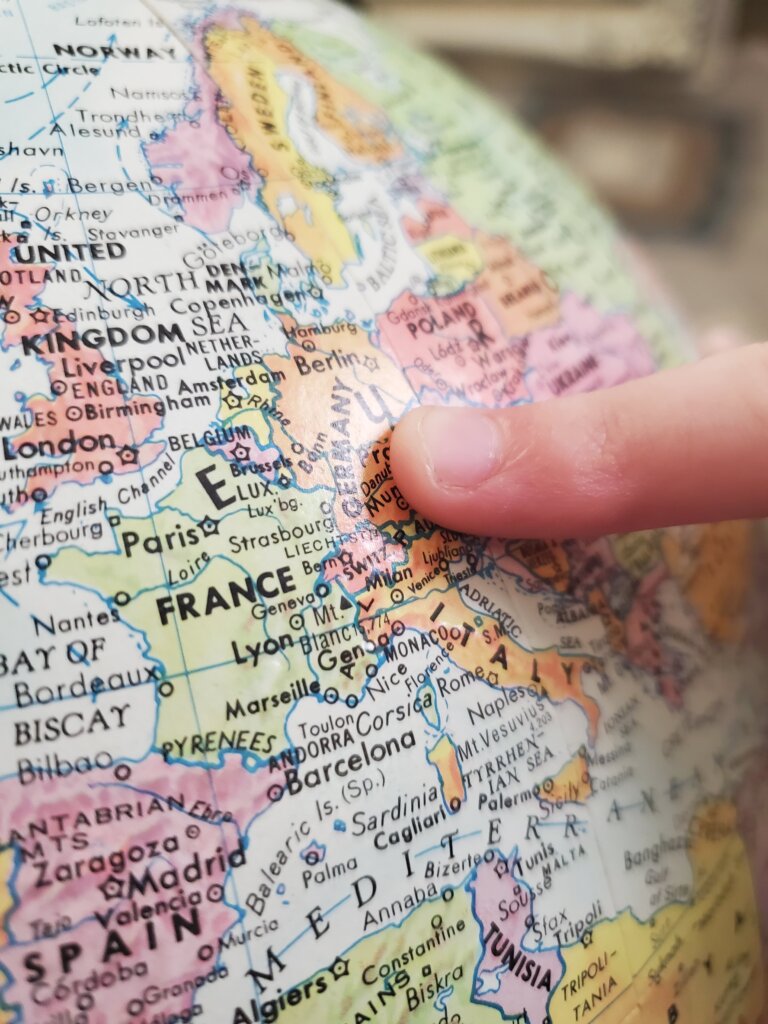
Plan your trip for shoulder or off-season
I know that “summer in Europe” sounds super romantic, but trust me… if you’re visiting the most touristy cities in Europe, it’s actually not romantic at all. In fact, it’s pretty sweaty, crowded, and gross.
One of the top Europe backpacking tips I can give you is to plan your trip away from peak-periods. Usually peak periods would be Easter, summer, and Christmas break. During these times, crowds and prices skyrocket.
In my opinion, May and September are some of the best months to travel around Europe. Spring in Europe is also amazing. During these times, the weather tends to be pleasant, but you’ll be shielded from peak season crowds.
NOTE: Peak season depends on your destination, so be sure to research busy periods for wherever you’e going.

Alternate between busy and chill destinations
One of the biggest mistakes I made during my first backpacking trip in Europe was I crammed SO many huge cities into my itinerary, one after another.
When your itinerary is nothing but European heavyweights like Paris, London, Amsterdam, Rome and Florence… yikes, you’ll be sightseeing your eyeballs off daily with zero chance for breaks.
So, here’s a very important Europe backpacking tip when planning your itinerary: try to space out the “big” cities with chiller destinations, maybe nature or beach breaks so you have time to rest up before sightseeing like the Energizer bunny once more.
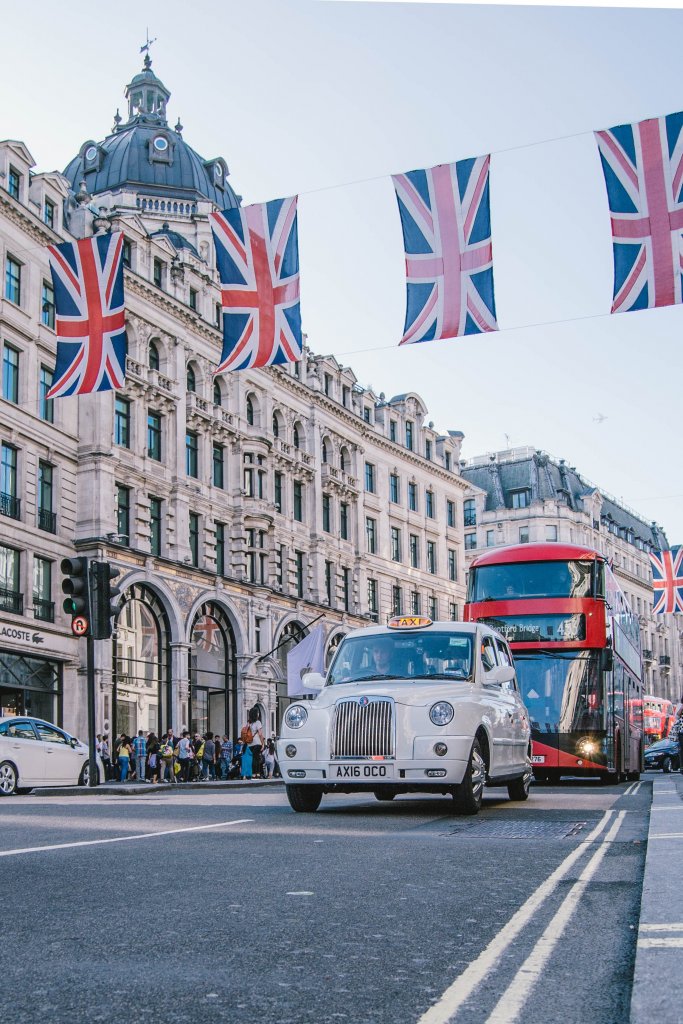
Understand where your money goes further
Most first-time backpackers to Europe will go to the most famous cities: Paris, London, Amsterdam, etc.
I’m guilty of this too! My itinerary was full of all the names I knew best.
BUT, of course, these cities are very expensive. If you’re truly backpacking Europe on a budget, it would be in your best interest to mix up your destinations so you’re not visiting only wallet-draining places.
Here are some areas to avoid/minimize time in if you’re backpacking Europe on a budget:
- Switzerland – So beautiful, but so, so expensive
- Nordic countries like Norway, Sweden, and Finland
- Iceland – Again, stunning, but very pricey

Alternatively, here are some cheaper travel destinations in Europe to consider:
- The Balkan countries, like Bulgaria, Albania, Serbia, Montenegro, North Macedonia & Kosovo
- The Baltic countries, like Lithuania (Vilnius is amazing!), Estonia, and Latvia
Of course, it’s possible to do any destination on a budget, but it all depends on how willing you are to subsist off bread and salami 😉

Know the tricks to get cheap airfare TO Europe
Hands down, if you’re coming from overseas, your biggest expense when backpacking Europe is going to be your flight there (and back, assuming the croissants don’t trap you here for good).
I’ve already written a full guide to how to find cheap flights to Europe, so read that for more tips.
But, here are some general tips to help you score cheap flights to Europe for your backpacking trip:
- Use Google Flights to compare costs flying into different airports
- Use Skyscanner to find the cheapest possible option from your departure destination
- Use deal sites like Secret Flying to pounce on cheap flights/error fares when they pop up
- Use a VPN like Private Internet Access to search flights from different locations, to see if you can find a better deal
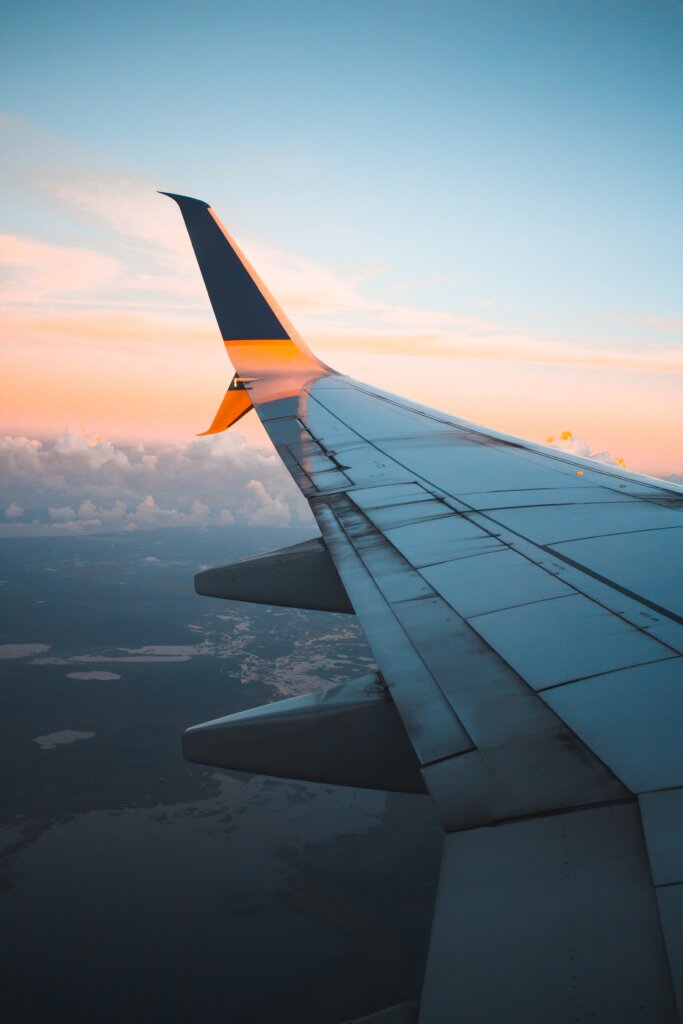
Ensure you have proof of onward travel
“Proof of onward travel” is a very important consideration that many first-time backpackers forget about.
Long story short, it’s proof that you’re leaving your destination before your visa or allowance expires. This is usually in the form of a return ticket, or a ticket elsewhere to prove that you’ll be leaving at some point and not staying for longer than your documents allow.
I know that one of the most intriguing perks of backpacking Europe is the spontaneity, but it’s VERY important that you can prove to the airline employees (or passport control officers) that you intend to leave before you overstay your visa allowance.
I was once almost barred from boarding a flight to Germany because my return flight was after the 90 day Schengen Zone allowance, and I didn’t have proof I would be leaving the Schengen Zone before the 90 days was over. I intended to spend some time out of the Schengen Zone to ensure I never overstayed, but they demanded proof… so yes, they do check!
Want to learn more? I have a full article if you want to read more about proof of onward travel and my experience lawyer-ing myself out of that (very awkward) situation.
Get to know the cheapest ways to travel around Europe
After you get to Europe, transportation options are abundant (and for the most part) very affordable.
I’ve written a full guide on the cheapest ways to travel around Europe, but here are some of the options available to you:
- Budget airlines like easyJet, RyanAir or WizzAir: No frills and loaded with hidden costs, but potentially very cheap if you’re smart and read the fine print
- Buses like Flixbus: Perfect for shorter trips & if time is not an issue as punctuality with buses can be a total crapshoot
- Rail passes like Eurail: Ideal if you want flexibility and the nice bucket list experience of traversing some of Europe’s most scenic train routes, but usually not the cheapest
- Renting a car: Often not cheapest by a long stretch (here is my guide on how much a rental car in Europe costs), but possibly worth it if you’re travelling with many companions and plan to visit places where public transport isn’t well served
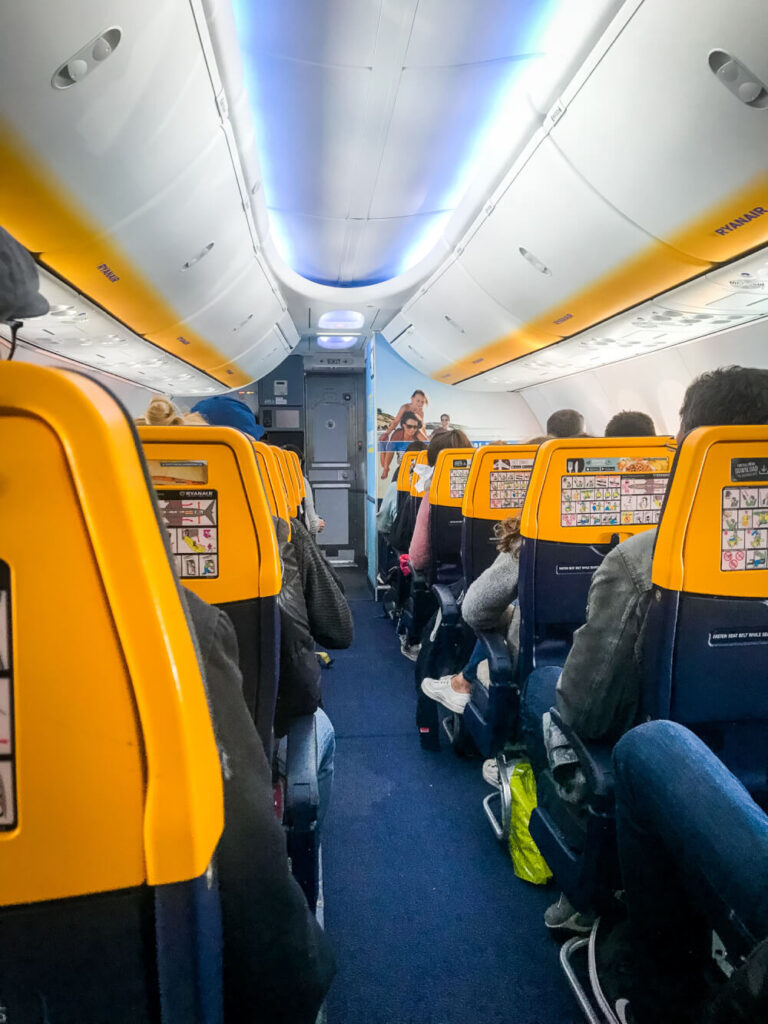
Learn how to book the perfect hostel every time
By and large, the most common accommodation option for backpackers are hostels.
If you are new to hostels, I have written this guide in how to book the perfect hostel every time, with tips on how to gauge safety and other things based on reviews.
My favourite tools for booking hostels is Hostelworld – they let you sort by price and rating very easily, and often you can just pay a small deposit rather than the entire payment upfront.
A few things to consider when booking hostels for backpacking Europe:
- Age limits: If you want hostels for the social aspect of meeting people your age, definitely book a hostel with an age restriction, otherwise you’ll often get school groups with teenagers or older travelers not as interested in mingling
- Free breakfast/activities: When you’re backpacking, every penny counts!
- Cheap hotels masquerading as hostels: Often you’ll find budget hotels that label themselves as hostels which aren’t geared as much to the social aspect of things… so be sure to read reviews to get a feel for the the social aspect of things.
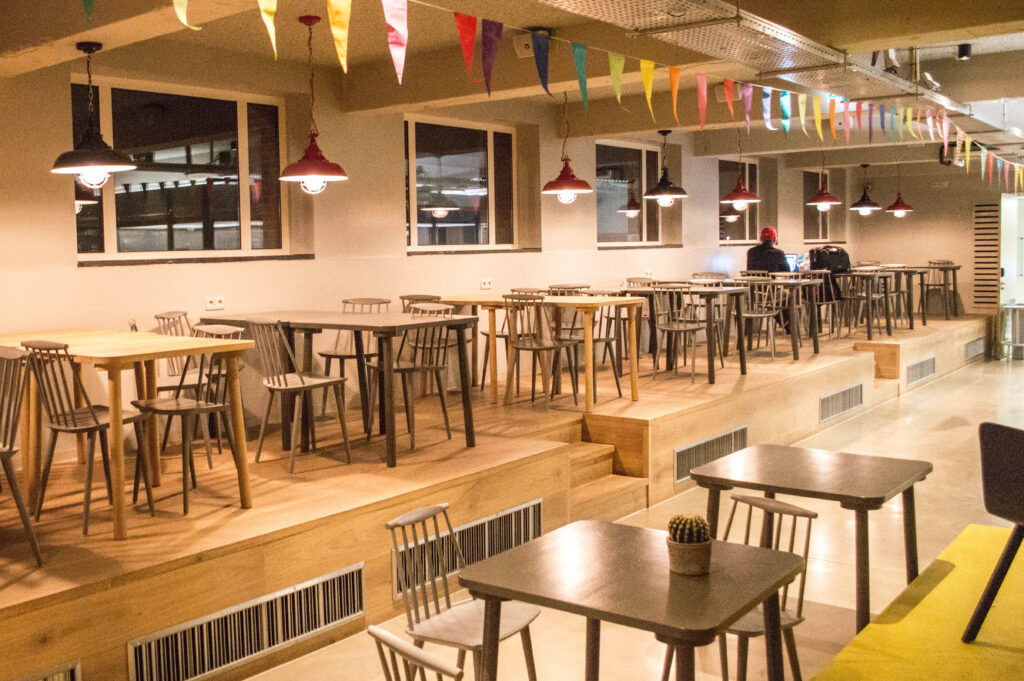
Book hostels with freebies
Another excellent way to save money while backpacking Europe is of course to exclusively book hostels that offer freebies like breakfast or tours.
A lot of hotels and guesthouses will provide free meals to their guests, and I’m not just talking about breakfast!
I stayed at a hostel in Prague that had a free dinner every night, and at others that offered free dinners a few times per week. Not only is this cost-effective, it’s a great way to meet new people too.
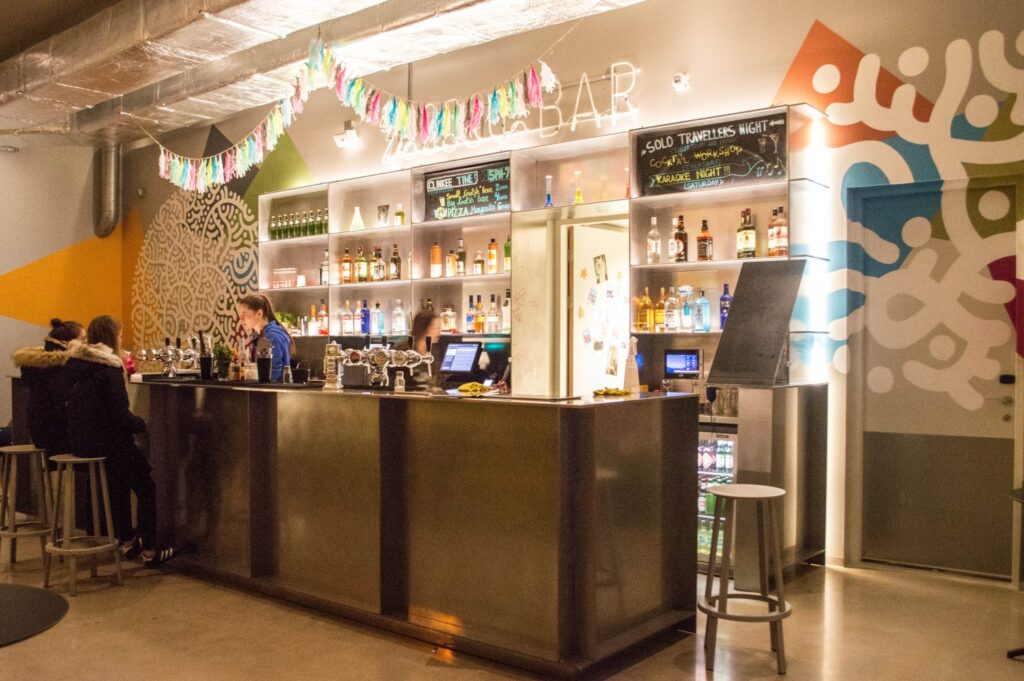
Try booking hostels and accommodation directly for more free perks
This is a secret tip that most travel bloggers leave out because it can cost them affiliate commissions, but since you’re here, I want to give you the best of the best tips for backpacking Europe.
99% of the time, when you book a hostel or even hotel directly (i.e. not through a booking platform like Booking.com or Hostelworld), they will give you some kind of discount or additional perk. This is because properties would much rather you book directly with them, since those platforms often take a sizeable cut of the booking.
In the past, I’ve seen tons of perks for booking hostels directly, including…
- Ordinary discounts (often 10% off)
- Free towels
- Free activities
- Free bedsheets (in properties where they cost extra)
So, if you really want the best deal possible when you’re booking hostels and backpacking Europe, then make sure you book with properties directly (i.e. on their website or by the phone).
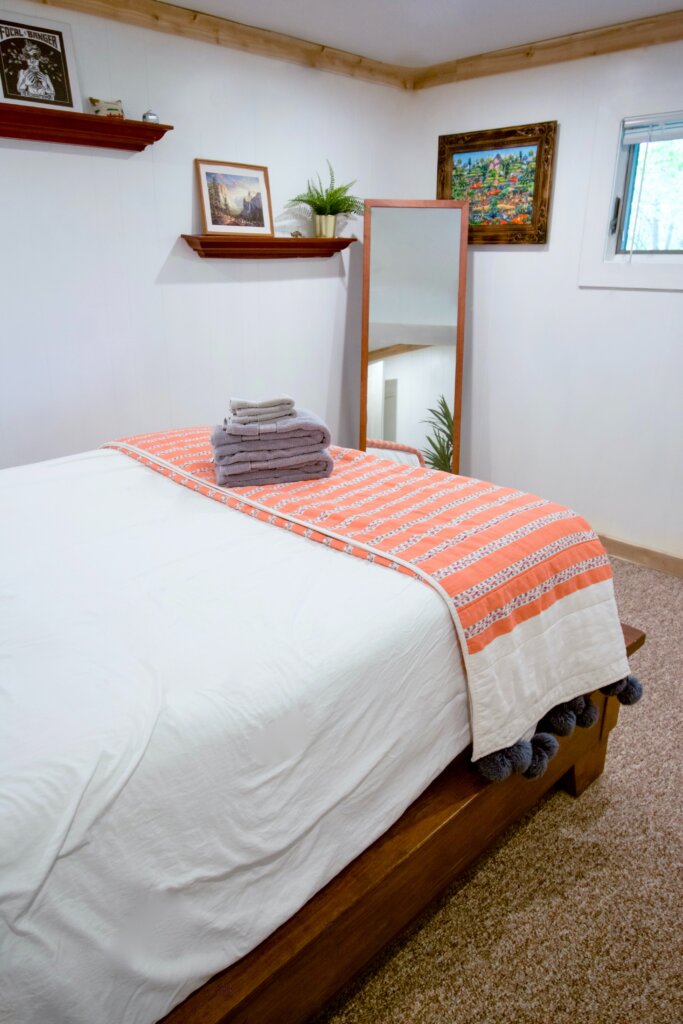
Learn more about AirBNB
If hostels aren’t your thing, or if you’re travelling with a group and want you own privacy, then AirBNB is probably the next cheapest option.
Besides being cheaper per night than hotels, there are also many other money saving perks that come with an apartment rental such as being able to cook for yourself, laundry facilities, etc.
If you’ve never stayed at an AirBNB before, don’t fret. If you take the necessary safety precautions, they are a very safe and pleasant way to travel.
Check out my guide to AirBNB for First Timers for more information.
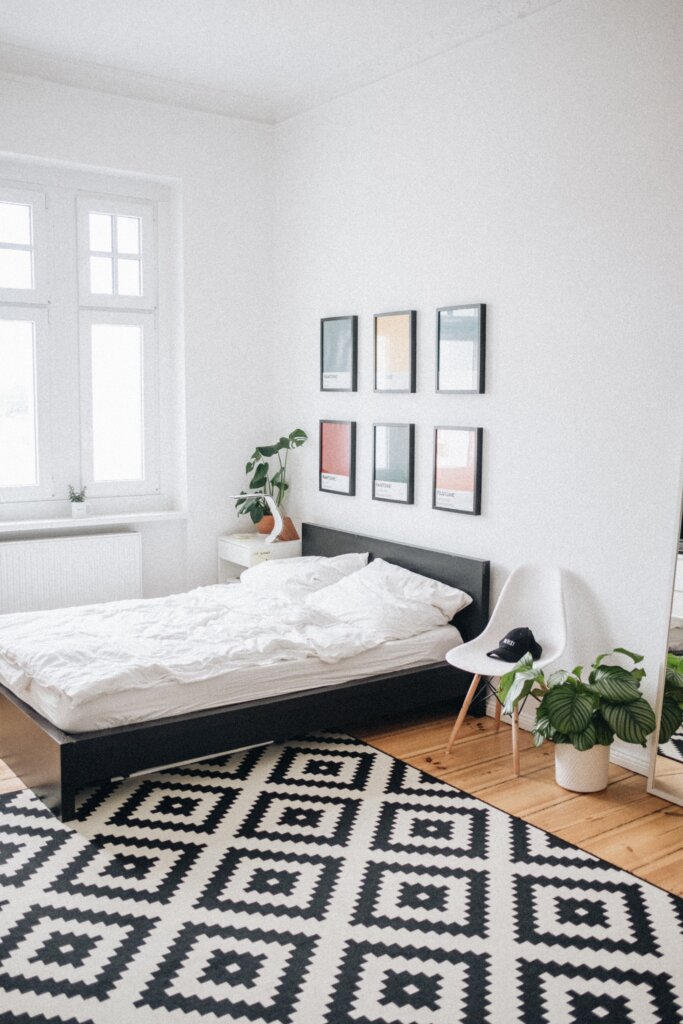
Get an official student card
Here’s a very important Europe backpacking tip for students. If you’re a student, you should know a) that caffeine dependency WILL catch up with you at some point and b) there are a LOT of amazing discounts available to you when you’re backpacking Europe.
Most major attractions will offer student rates/discounts, and often transportation will be cheaper too if you can prove you’re a student.
Unfortunately, just having your student card from your own school isn’t enough, because these can be easily forged and every school’s looks different. An ISIC Card however is an internationally recognized student ID that costs about twenty bucks, but will save you at least that much in discounts.
I’d recommend getting one for sure if you plan to backpack Europe for several weeks/months because the discounts it can unlock are amazing.
NOTE: Your regular Student ID can sometimes work, but places are getting increasingly strict and asking for ISIC cards specifically.
Download all the right apps before you go
There are a variety of amazing apps that can help you a lot when you’re backpacking Europe.
I’ve previously outlined a full list of the best travel apps for Europe, so read that guide for a comprehensive roundup.
But, here are some must-have apps that are all free:
- Omio: A search app that lets you quickly compare/book transport options from Point A to Point B, including buses, trains, and flights
- Google Translate: Absolutely essential for countries where you don’t speak the language. Best of all, you can save languages for offline use so you don’t use data
- Google Maps: A must-have for getting around easily and saving places you want to visit
- TripIt: An organization app that collates all your hostel/transport bookings, attraction tickets, etc. all in one place by scanning your email inbox for confirmations
- PIA: My VPN of choice – great for having on your computer & phone so you can browse securely on public WiFi networks & also spoof your geographical location to access restricted sites, or country-specific streaming offerings.
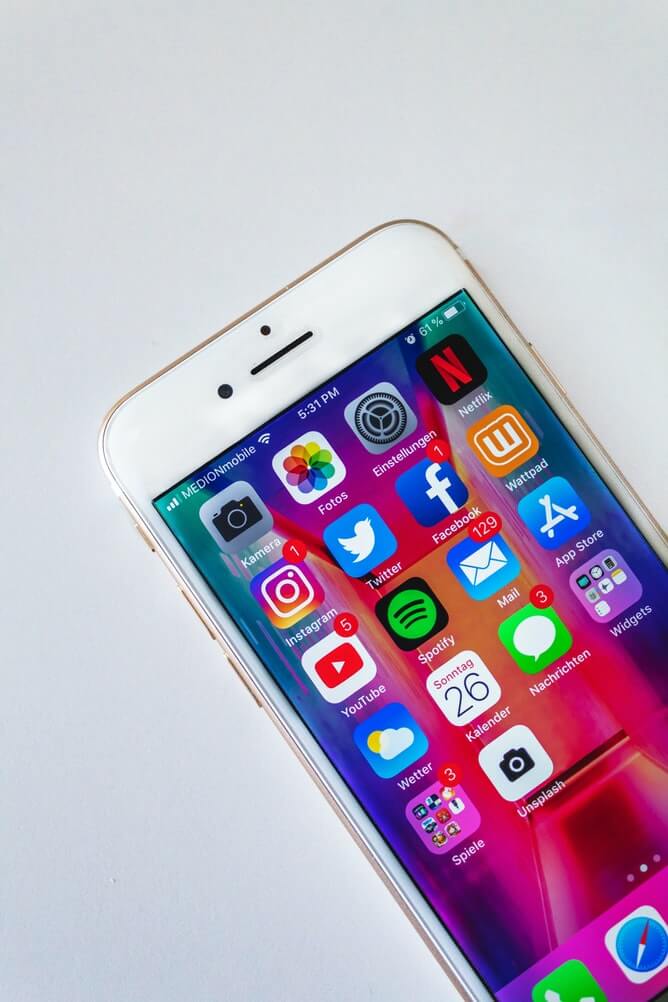
How to Save Money on Food and Drink When Backpacking in Europe
Next to hard costs like accommodation and transport, food & drink is probably the biggest expense for any backpacking budget. So, here are some Europe backpacking tips for saving money on food and drink!
PS: You might want to read this article on ways to save money for travel as well.
Remember grocery stores are your best friend
I have a geeky obsession with visiting grocery stores everywhere I go – it’s such a fun insight into different products/foods, plus they can help you save a LOT of money.
Snacks, drinks, water and pretty much everything will be cheaper at a grocery store vs. kiosks, takeaway joints or or convenience shops.
So, if you feel like you need fuel throughout the day, buy some goodies in advance so that you don’t make hungry and impulsive spending decisions.

Master the art of the picnic
Restaurants are expensive, no doubt, which is why you’ll quickly learn when backpacking Europe that picnics are your best friend.
Grabbing grocery store meals or street food is comically cheaper than eating out, so haul your goodies to a park and enjoy. This is also an excellent opportunity to people watch and soak in the unique atmosphere of wherever you are.
To be even more cost-effective, consider splitting picnic costs with a friend. A hunk of cheese and a huge baguette can feed more people than you think!
Or, really, when in Europe, bakery treats are always a good idea:

Book accommodation with a kitchen
This is one of the most important Europe backpacking tips I wish someone had told me. If you’re really looking to cut your food costs, you can always prepare your own meals. It might seem obvious, but newbie-me never even registered this as an option.
Many hostels and guesthouses will provide kitchens (and often free food shelves left by other guests).
I didn’t do much of this because a) I could barely crack an egg and b) cooking is time-consuming, but this is an amazing way to save.
Of course, don’t forget to splurge a little and treat yourself to local foods too! There are ways to do that cheaply to, for example…
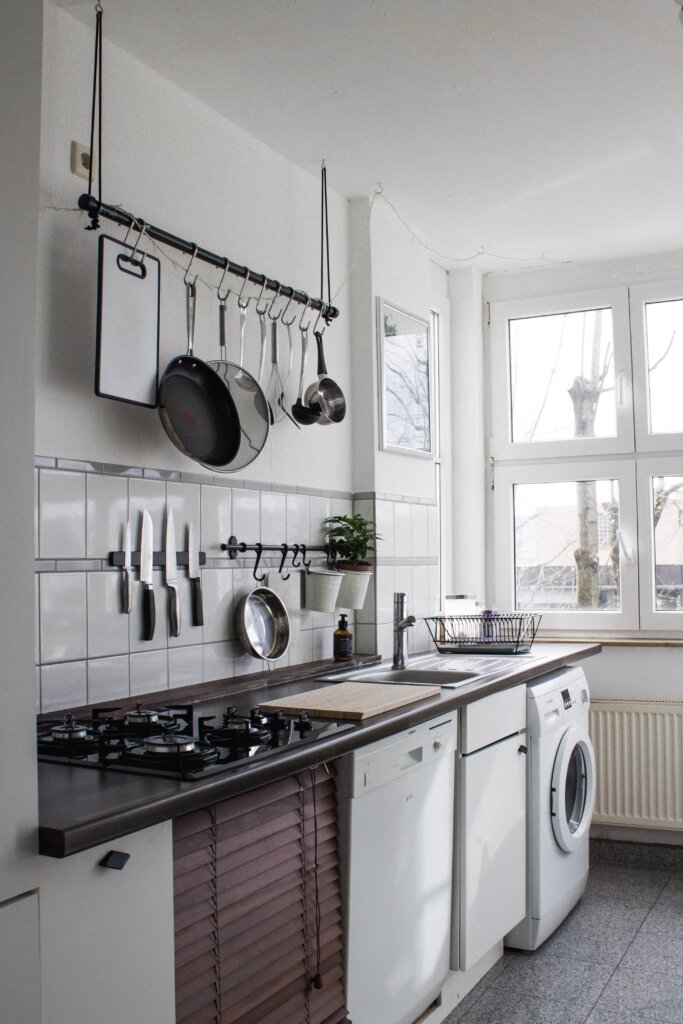
Take advantage of lunch deals to sample local cuisine
I love food, and sampling local specialties is one of my top priorities whenever I travel.
But, dining out can quickly eat away at your budget.
The best backpacking hack I can give you for eating well while also saving money is to eat like a king during lunch hours, and then having a more basic dinner. Oftentimes, restaurants in Europe will offer set lunch menus where their dishes are a fraction of the cost than at dinner.
This is a great way to eat well without breaking the bank.
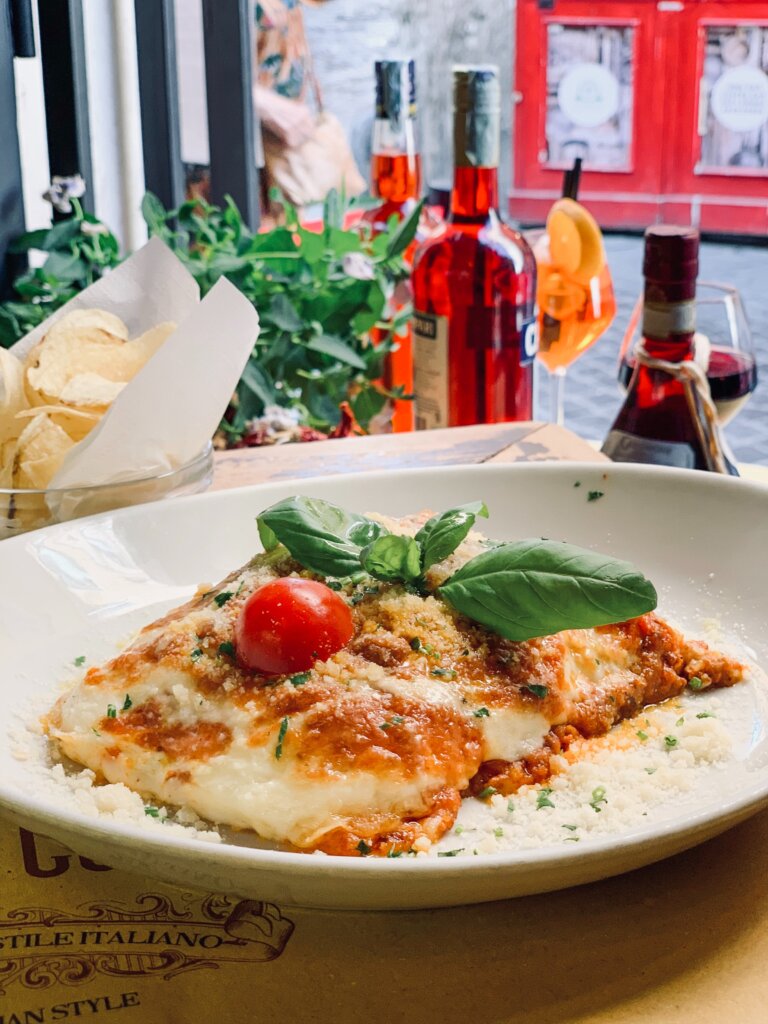
Dine far away from tourist attractions
And another Europe backpacking tip for dining out is to steer clear of food establishments close to big tourist destinations.
It shouldn’t be a surprise that prices around these areas are grossly inflated, and the quality is often questionable as well since they’re catering to tourists who will likely never come back.
Often, even moving 2-3 blocks away from main tourist attractions can make a huge difference cost and quality wise.
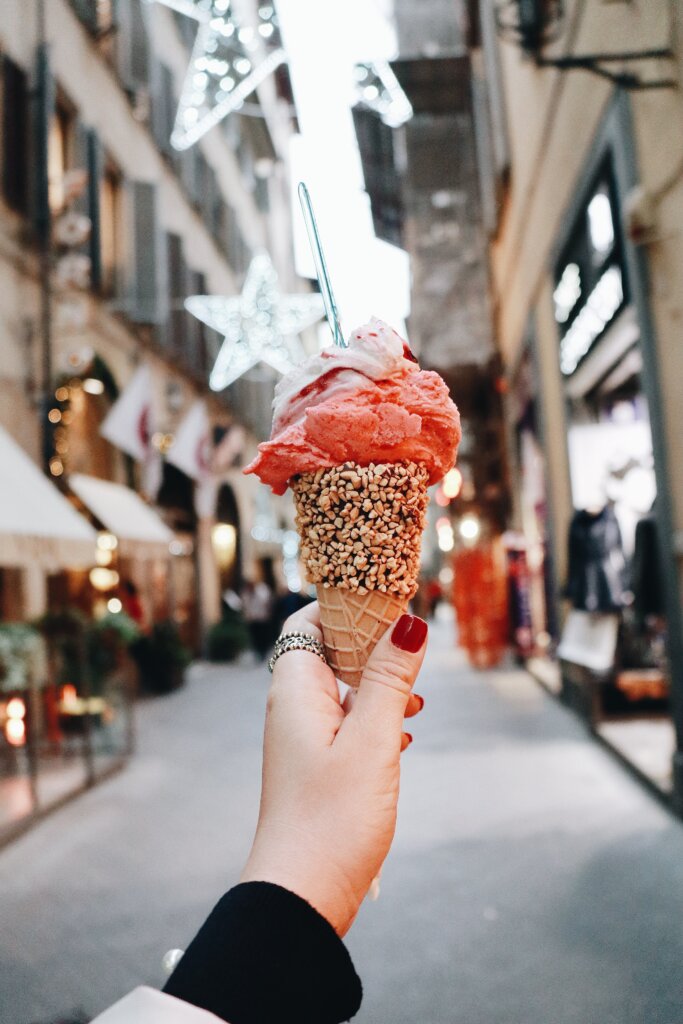
Skip bars in favour of boozy picnics
I love going to bars, but going “out out” can add up.
Fortunately, alcohol is usually very cheap at grocery stores across Europe, and having boozy picnics is a popular past time. Yup – drinking in public is fairly lax in most European countries, so why not partake in the name of culture?
One of my most valued memories from Paris was drinking cheap wine along the Seine as the sun came down… surrounded by both locals and tourists all doing the same. Get creative – you don’t need bars to be social.
After all, why pay 5 euros for a glass of wine in a restaurant when you can get a full litre for 1 euro? (Okay sure the quality is questionable, but you can literally find wine that cheap here!)
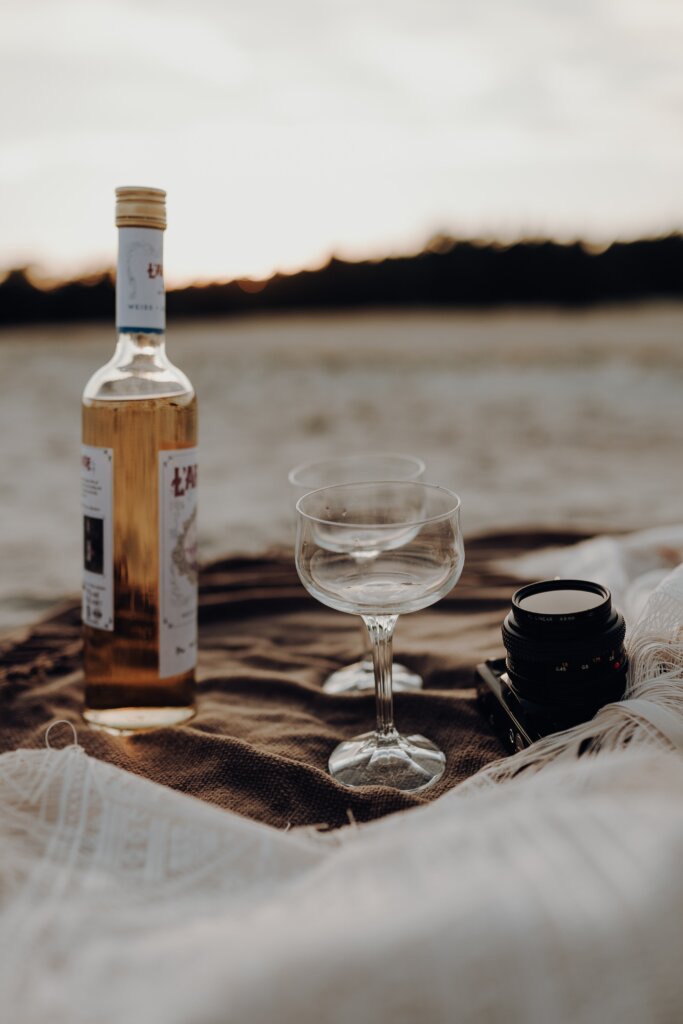
Get takeout for super cheap with Too Good to Go
One of my favourite (little-known) Europe travel apps is called Too Good to Go.
They service many major European cities, and basically, it’s a free app that restaurants use to sell their leftover food at the end of the day (sometimes at lunch too).
This helps minimize food waste, and means you can pick up an entire take out meal for less than 5 euros.
Sure, you don’t get to choose what you get, but it’s an excellent way to eat cheap and help reduce waste at the same time.

How to Save Money on Attractions When Backpacking in Europe
Another huge cost when backpacking Europe is attractions and things to do. Here are some tips for saving money on this part of your trip.
Become a master of free attractions
Everywhere you go in Europe, there will be free things to do and see, ranging from free museums to beautiful architecture and street art.
So, be sure to research beforehand and see what free things there are to do at your destination.
NOTE: A lot of museums across Europe offer free admission on particular days of the month. Take advantage of these offers!
Or hey, if you want to be very extreme…
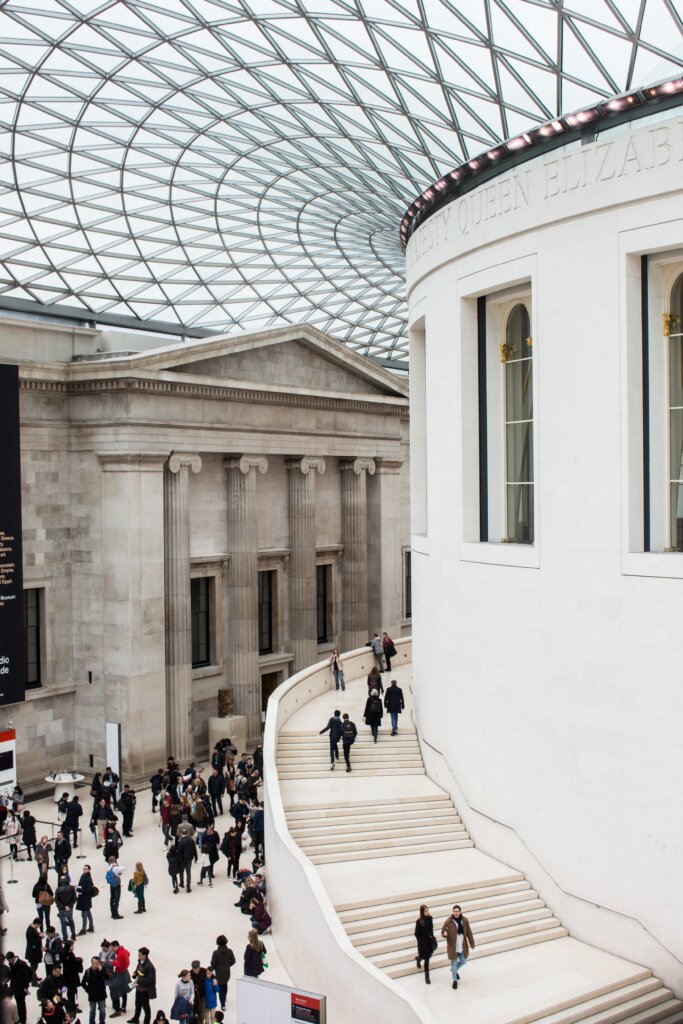
Plan your backpacking trip destinations around free days
As I mentioned, many museums and attractions in Europe have ‘free days’ where admission doesn’t cost anything!
If you have the luxury of flexibility, one of my top Europe backpacking tips is to consider researching these free days and planning your itinerary around them.
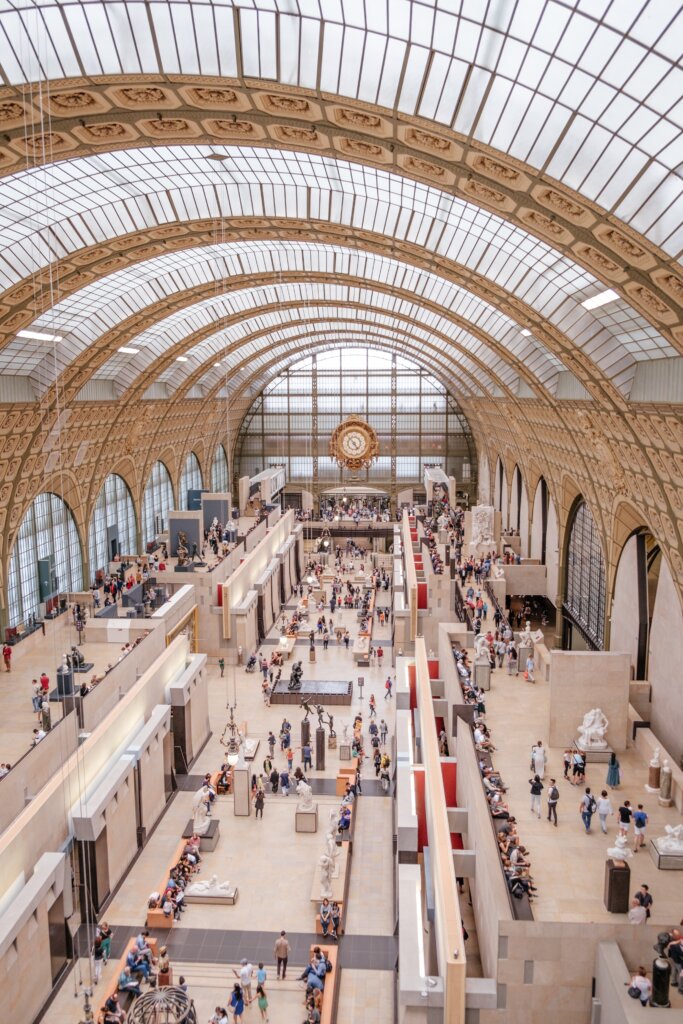
Learn how to seek out awesome, offbeat activities, rather than touristy ones
I love being a cheesy tourist. There’s zero shame in it…
I mean if you’re visiting Paris for the first time, no way you’re going to skip Paris’ main landmarks or Montmartre, you know?
That said, some of my favourite memories while backpacking have revolved around going a bit off the beaten path and doing weird attractions/spots that aren’t recommended in every single guidebook.
I have a lot of tricks for finding cool things to do around you no matter where you are, but here are some of the best ones:
- Search up your destination on Atlas Obscura, which has a lot of amazing offbeat ideas
- Find websites that cater to locals to discover events, new restaurant openings, etc.
- Use Google Translate to search in the local language (often you’ll find lots more content that way)

Always ask for a (student) or other kind of discount
Many attractions will offer special discounts for particular groups like residents of that country, students, military, etc.
In addition, discount codes and coupons are just a Google away.
If you know you’re hitting up a particular attraction, be sure to check the Internet quickly for deals, and ask your hostels & local tourist centres if they have coupon books.
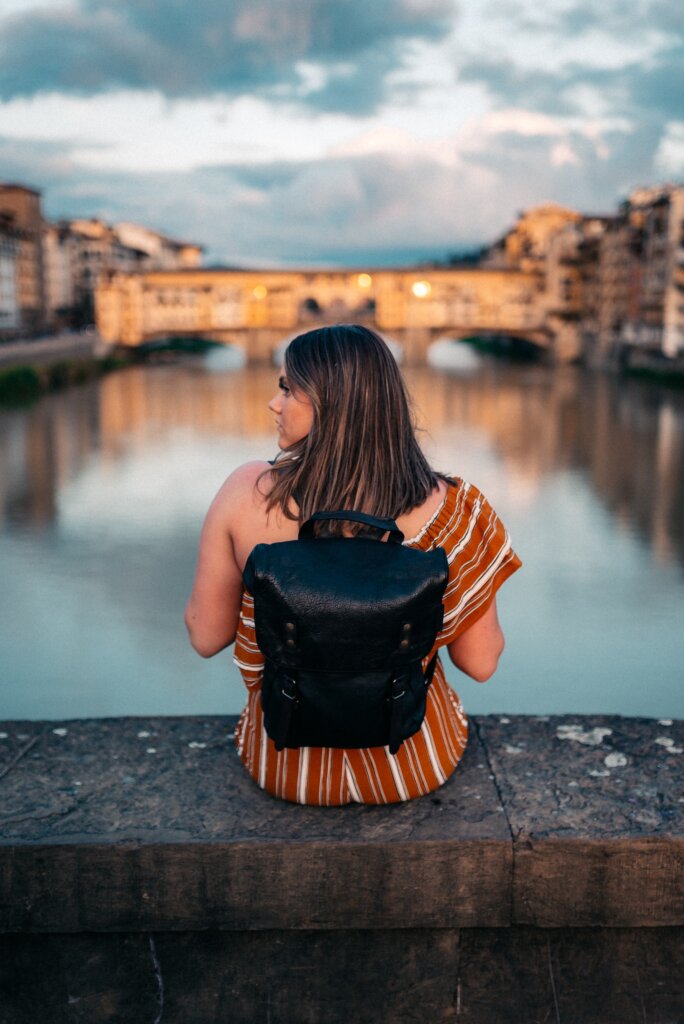
Get a City Card or pass
In some destinations, you’ll want to visit as many attractions and museums as possible.
This was me in Paris, London and Amsterdam. There’s just so many iconic must-do attractions that I knew I wanted to check as many as possible off my list!
In cases where you know you’ll be doing a LOT of sightseeing, my best tip is to get a City Card of some kind. Most major cities will have them (like the iAmsterdam Card for example), and they give you unlimited access to museums/attractions for a certain time period, for one set price.
Often these cards are expensive at first glance, but with proper planning and strategy, can save you literally hundreds of euros per city.
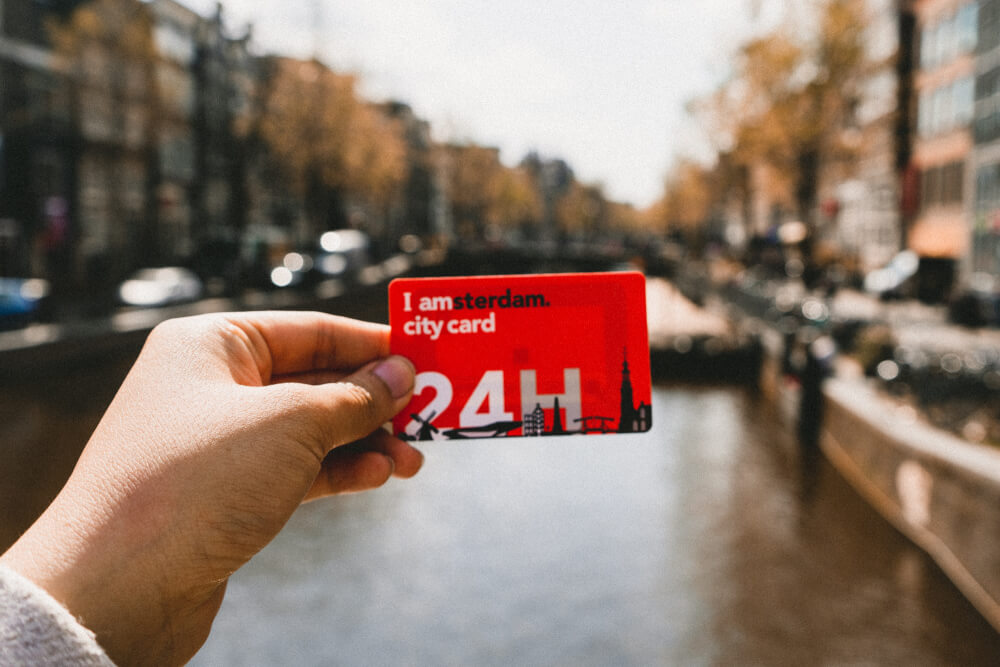
Safety Tips for Backpacking Europe
While we often think of backpacking as a fun and carefree experience, there are often very real safety issues and potential threats to be mindful of. The best way to safeguard yourself against threats is by familiarizing yourself with the risks involved, so here are some safety-related backpacking Europe tips you should keep in mind.
Look into theft-proof bags and accessories
There are a lot of amazing theft-proof travel accessories out there these days. The bad news is they’re not always the cheapest.
If you’re willing to splurge a bit on something high-quality and designed to thwart pickpockets, here are some options:
- PacSafe’s products are all made to be theft-proof, including their signature backpack here and day bag here
- Secret passport scarves like these are a great way to stash THE most important things in a subtle and discreet way
As a DIY solution of course, look into jackets or bags that have inner pockets – this extra layer of security can work wonders in terms of deterring pickpockets, and can be useful for everyday wear and not just travel!
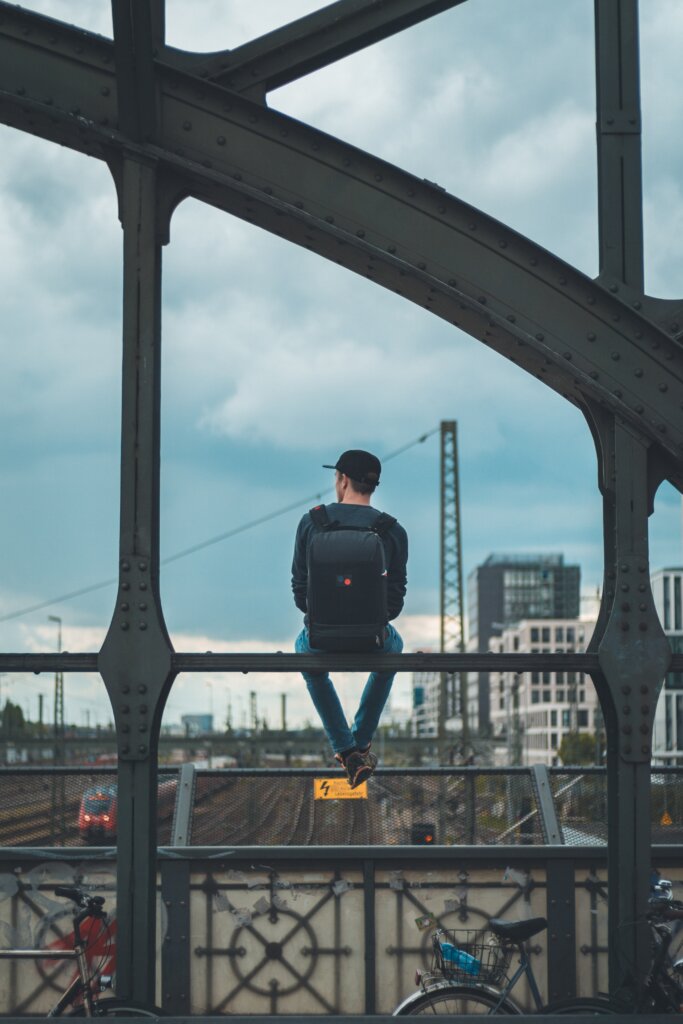
Get familiar with common European pickpocket scams
Backpackers are easy targets in Europe – one quick glance at us and our oversized back destroyers, and it’s clear we’re not exactly “local”.
One of the best ways to protect yourself against pickpockets though is to know their usual tricks. Generally speaking, you should know that pickpockets tend to…
- Thrive on distraction – they will often work in groups or bump into you to get close
- Frequent busy places like train stations and crowded tourist areas
I’ve written a full guide on how to avoid pickpockets in Europe if you want to know all the common tricks/scams they use, but the best defense is always to avoid letting strangers get close to you, and to stash your valuables somewhere safe and difficult to reach.
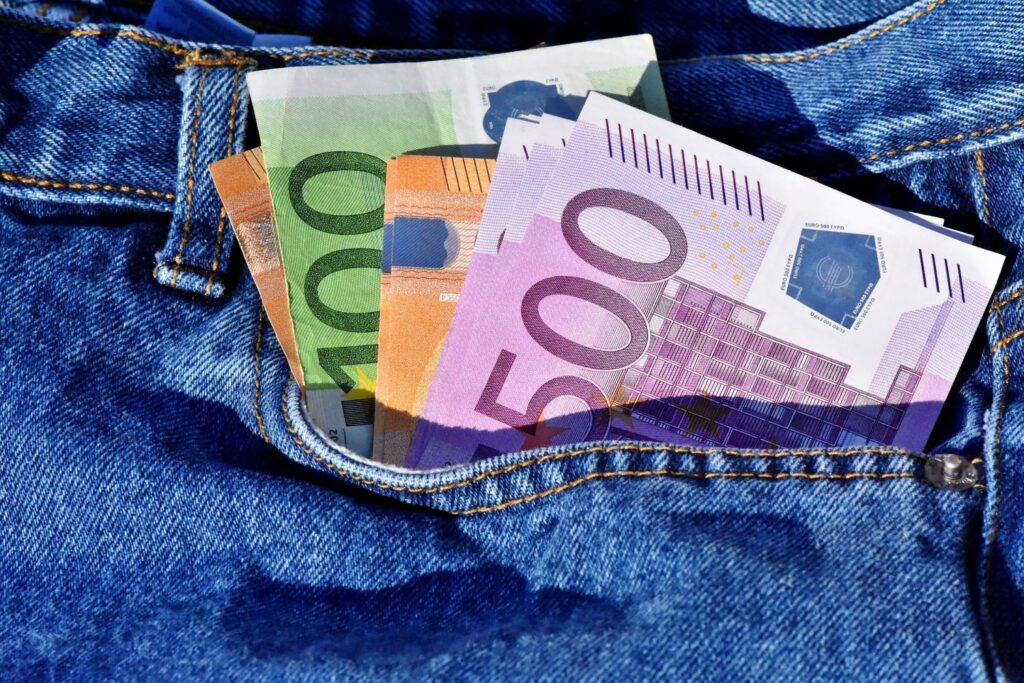
Look up common taxi rates and scams before arriving
While I’m a firm believer that public transport is the way to go when you’re on a backpacker’s budget, sometimes you might need to take a taxi, whether it’s because you’re arriving late, running late, or just want to splurge a little.
While this varies depending on the country, taxis are often prime scam zones! I’ve personally been scammed by taxis in Prague and also in Sofia.
Particularly if you are leaving from busy areas like airports or train stations, some opportunistic drivers will take advantage. This is how I got charged 4x the usual fare in Sofia, mainly because I didn’t know better.
So, if you plan on taking a taxi, make sure you search up how much that route should generally cost, and also familiarize yourself with common scams.
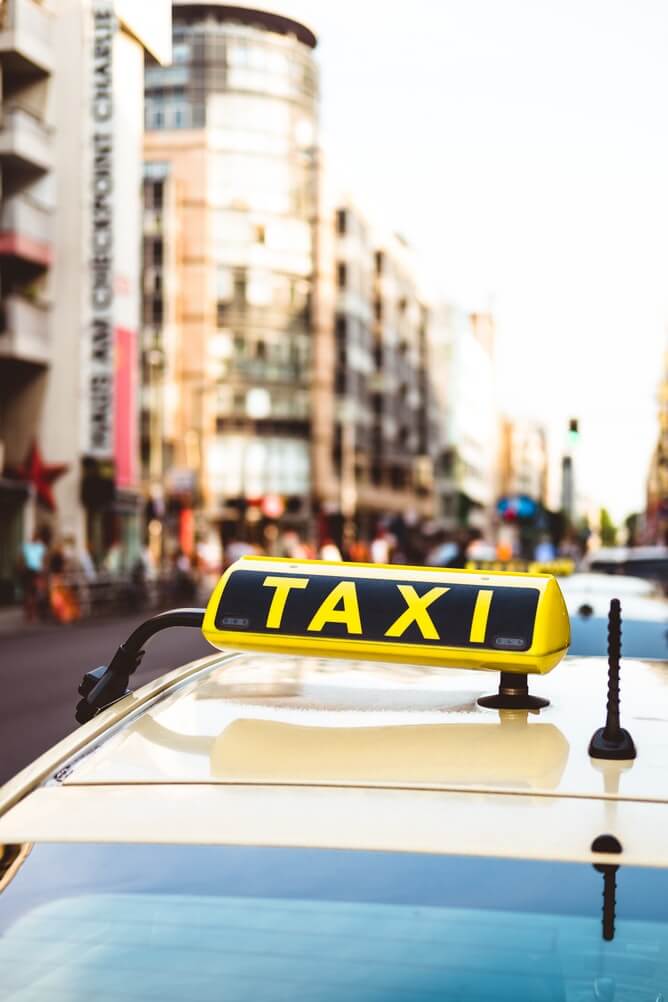
Get a good VPN
If you plan to be travelling longer-term, getting a reliable VPN is a must.
In short, VPNs (or Virtual Private Networks) mask your IP address and encrypt your data so that you can protect your identity online, browse anonymously, and even change the geographical location you’re browsing from.
This can be helpful in a lot of backpacking situations. In the past, I’ve used a VPN to…
- Access streaming for my favourite TV shows that weren’t available in the country I was travelling in
- Visit sites that were blocked in the country I was travelling in
- Access important sites (e.g. banking portals) that flagged my visit as suspicious because I was in a new country
- Securely browse the Internet with public WiFi knowing my data/identity was protected
As a real cheapskate (especially in my earlier travel days), I’ve tried every free VPN under the sun, and always found them to be unreliable or buggy.
After doing lots of research, I decided to splurge on Private Internet Access, which I’ve been using for the past few years, and I’ve been loving it. It’s super easy to use, very reliable, and actually (when you break it down) not expensive it all.
Subscribe via this link and you can get it for under 3 bucks a month.

Make a “worst case scenario” plan
I never expected to get robbed while backpacking Europe, but I did! In Rome, actually… right at the train station upon arriving.
I was really lucky I was with two friends who helped calm me down and got me the right phone numbers to call so I could cancel all my cards.
No matter how prepared you are, the worst case scenario (e.g. losing your passport, getting your phone stolen, getting all your money stolen, etc.) can happen. So, it’s best to prepare yourself and have a plan in place, including….
- A copy of your passport and IDs
- Important phone numbers (e.g. your bank and credit card company) to call
- A way to get emergency funds in case all your money gets stolen
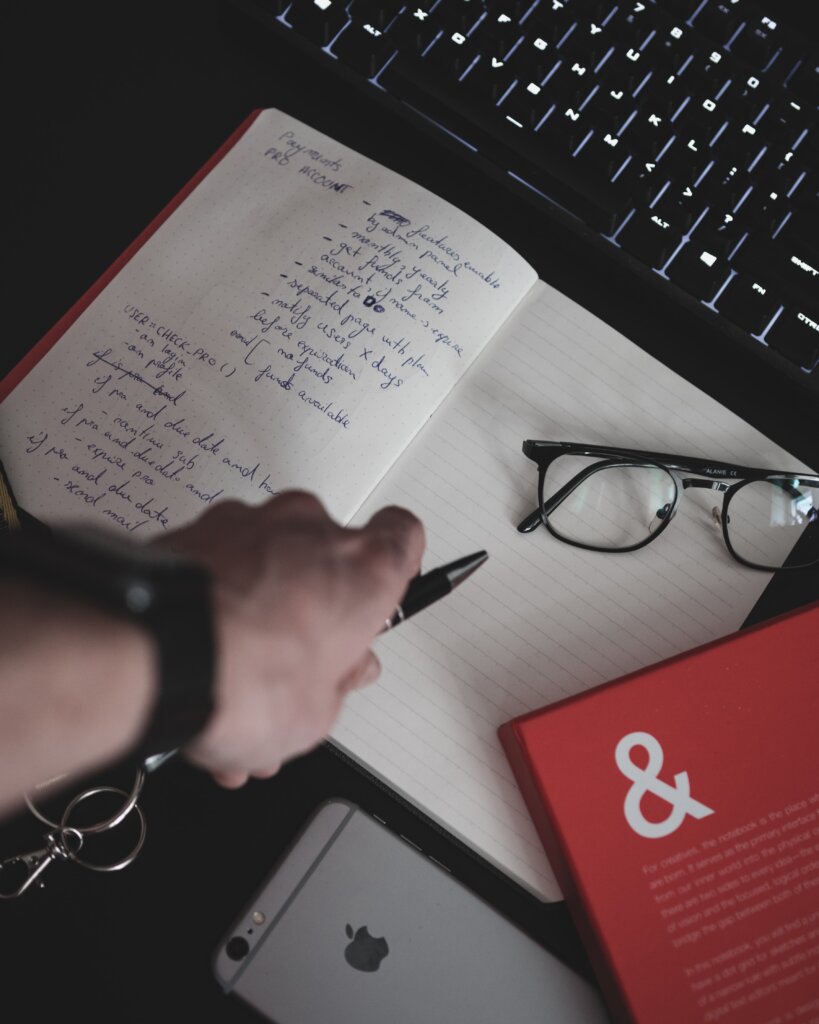
Packing Tips for Backpacking Europe
Hands down – the most stressful part of my first backpacking trip in Europe was deciding what to pack. I 100% did it all wrong, so here are some packing-related tips for backpacking Europe that you should keep in mind.
Get good at minimalist packing
One of the biggest mistakes I made when I was backpacking Europe for the first time was I way overpacked.
Wayyyyyyy. overpacked!
Remember: anything you bring with you will HAVE to be carried by you several times throughout your backpacking trip… often in the worst of times – like apocalyptic weather, searing heat, and *whispers* even when you’re hungover.
So, it’s really in your best interest to learn how to pack minimally and smartly.
Luckily, I have just the guide for that, even with packing lists you can steal. Check out my free minimalist packing lists for more.
To get you started though, here are some basic tips for minimalist packing while backpacking Europe:
- Make sure every top matches every bottom
- Pack versatile multi-purpose wear (e.g. active wear that doubles as PJs)
- Pack convertible items like this dress that can be tied in 8 different ways
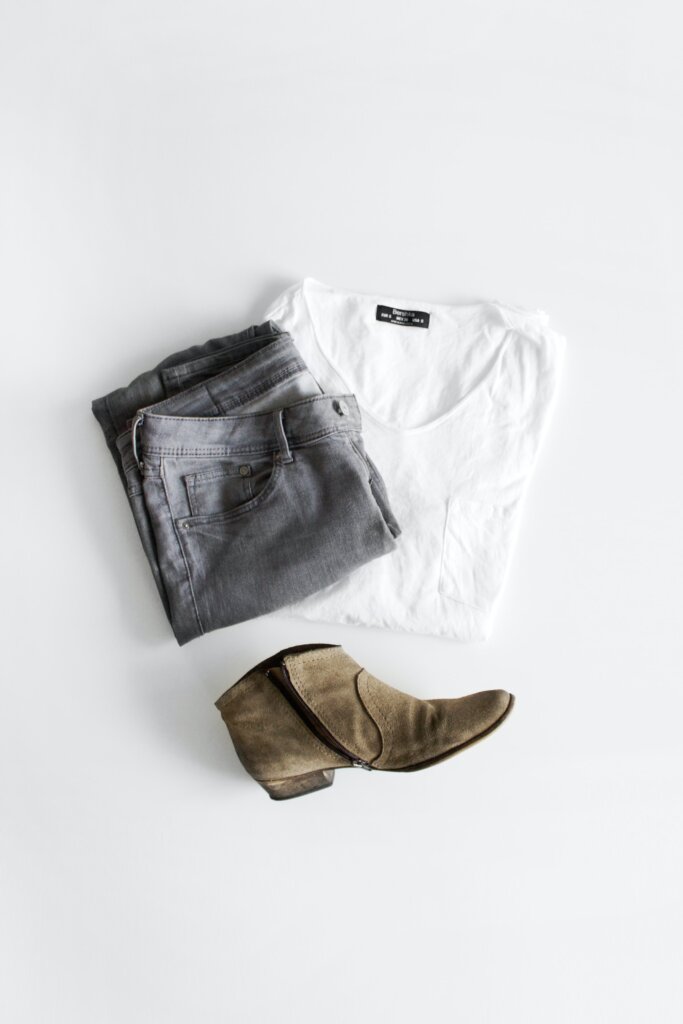
Invest in an excellent travel towel
Allow me to gush about one of my favourite travel purchases of all time: this travel towel.
It folds up to almost no space at all, is ultra absorbent, dries quickly and can double as a beach towel in warmer countries. I am in love with it and still use mine 7 years later, so I would say it’s amazing value.
I’ve literally bonded with people in hostel dorms over the absorbent amazingness of this towel, so I promise you won’t be disappointed!
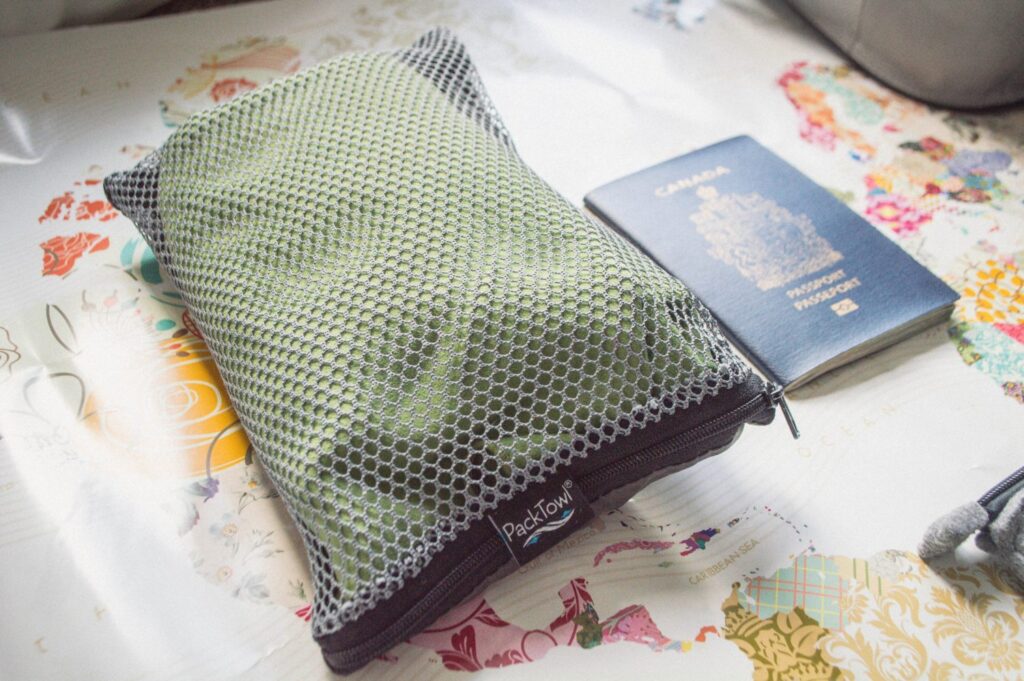
Organize your stuff with packing cubes
I honestly have no idea how I lived prior to purchasing packing cubes.
These beauties are a magical way to keep all your goods organized, while saving space in your bag as well. Gone are the days that you rummage through your entire pack for a particular t-shirt!
Not all packing cubes have to be expensive either. There’s plenty of affordable options on Amazon, like this blue set from Amazon Basics, but you definitely get what you pay for.
PS: I’m a total packing cube nerd and once bought a bunch of different brands to compare. See my full packing cube showdown for more.
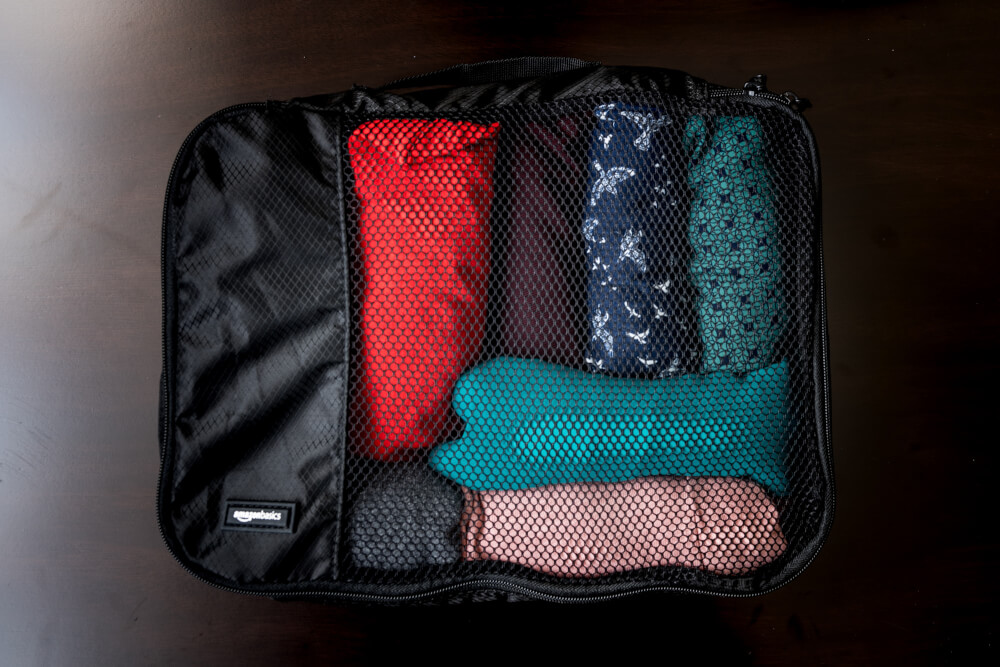
Bring a lock
While most hostels will offer padlock rentals, having your own is a great money saver and an essential item if you’re hostelling during your trip.
It can also help you lock up the zippers on your backpack on travel days, to ward off any pickpockets!
I’d recommend getting a combination lock rather than a lock/key combo, mainly because if you’re anything like me, you will 100% lose that key within seconds.
TIP: A multi-pack like this is cheap, and then you can have one lock per bag and back-ups in case you lose one.
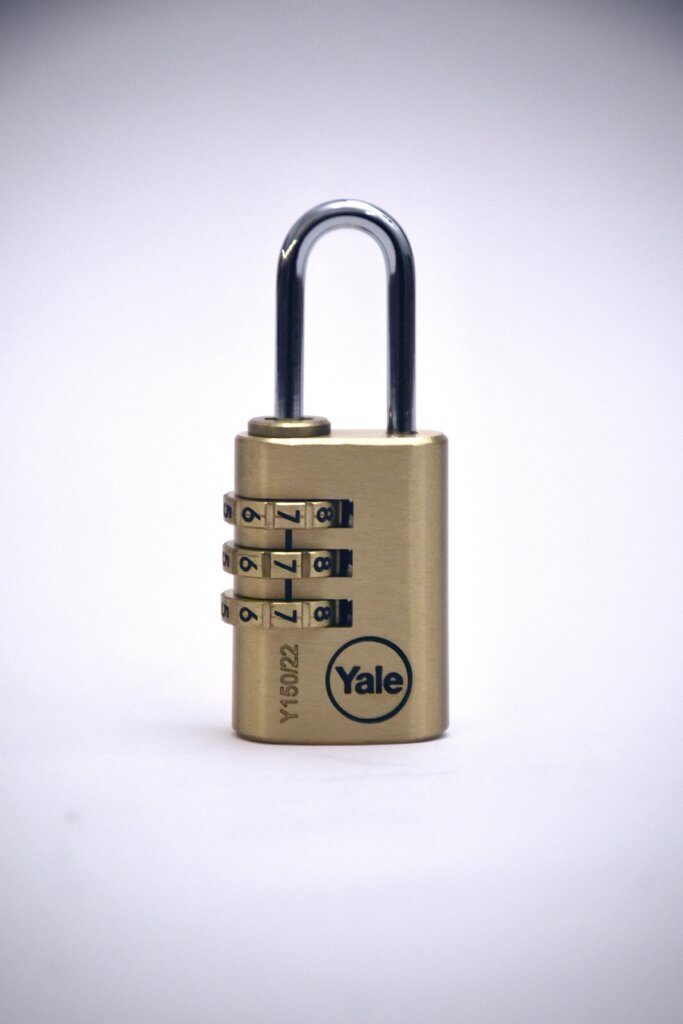
Have a great pair of flip flops
Why do you need flip flops? Two words: hostel showers.
They’re also great shoes to have around if your feet need to breathe, or if you’re headed to the beach.
I swear by this pair from Crocs (I know – don’t worry! They don’t look like Crocs!) Not only are they waterproof, they have a sleek and unique “dressier” design than typical flip flops which means you can get away with pairing them with dresses.
Fun fact I learned while backpacking: Australians call flip flops ‘thongs’. Needless to say, when a hostelmate told me she found someone’s thongs under her bed, I didn’t think she meant shoes.
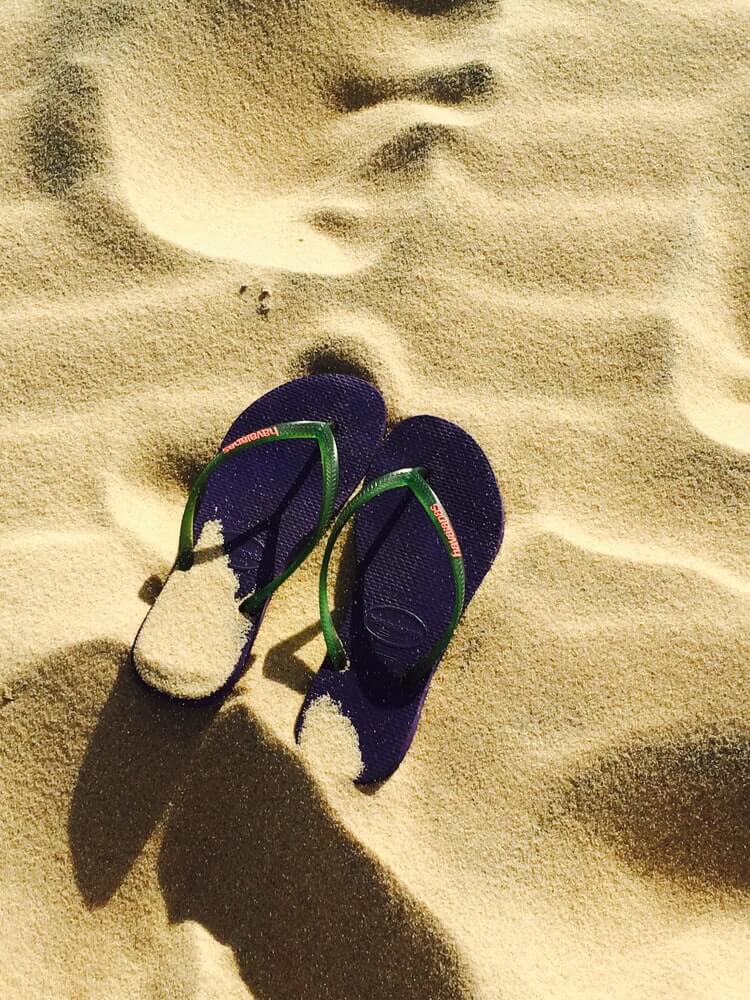
Bring a lightweight cutlery set
As I mentioned above, picnicking is a backpacker’s best friend when it comes to eating affordably.
While many grocery stores will have plastic cutlery for you to take, having your own set just-in-case will save you a lot of stress when you want to cut up your baguette or eat your store-bought gelato in peace.
This is the versatile and cheap spork I travel with these days. It’s super light and handy to have just in case!

Pack duct tape
A random, but essential item for your backpacking trip is duct tape.
From patching up broken bags to sealing up shoes that randomly split (true story), it’s a light and versatile item that travellers often forget to pack. No doubt, it has saved my butt numerous times.
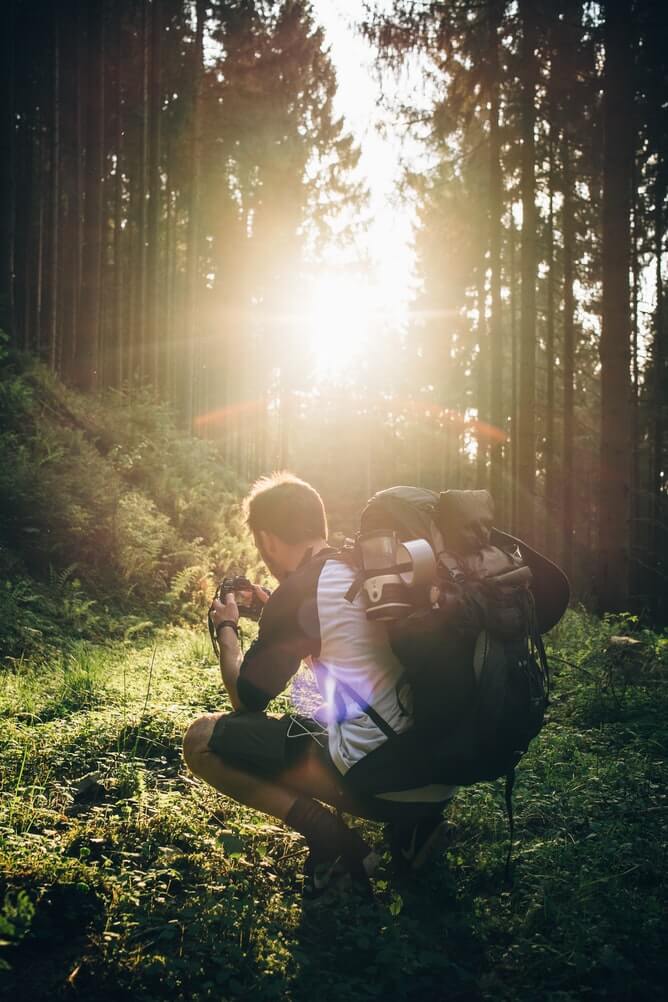
Other General Tips for Backpacking in Europe
Last but not least, here are some miscellaneous tips to keep in mind for your backpacking trip in Europe.
Walk as much as possible
Walking is the absolute best way to explore a city, and most European cities are wonderfully walkable (moreso than many North American cities I’ve noticed anyway, which tend to be more spread out).
Bus and taxi fares add up quickly, so walking from place to place will save you a ton of money.
You’ll also get to see the city better while working off all those carbs you’ve been inhaling!
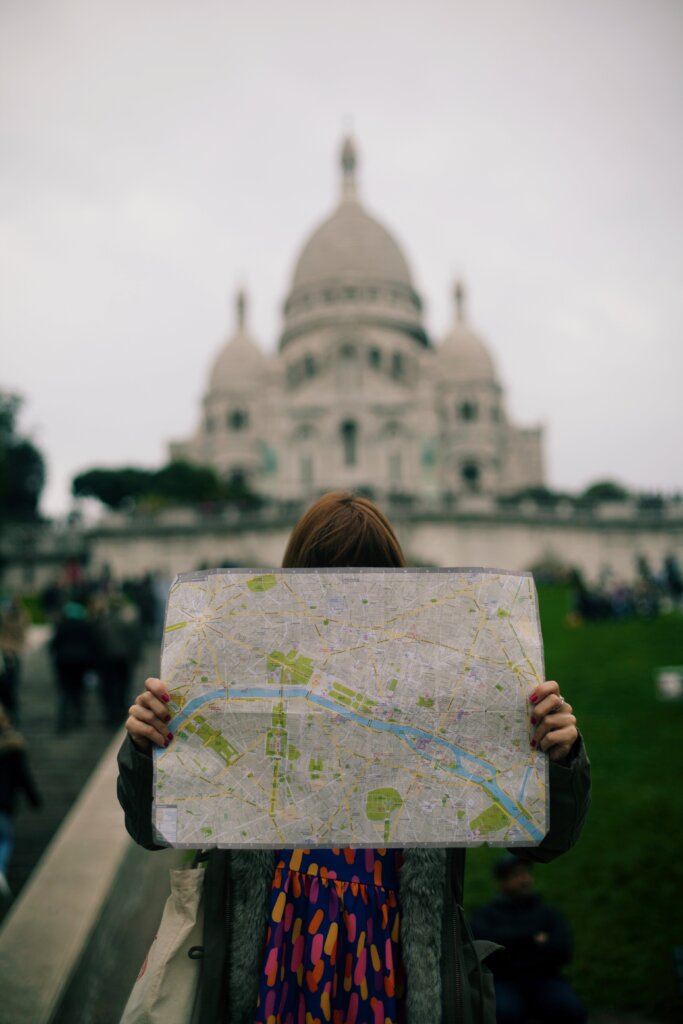
Read up on the public transport system before you arrive anywhere
Generally speaking, public transport in most major European cities is incredible, and often the most cost-effective way to get around (besides walking of course).
But, unfortunately, they’re not always intuitive… and they vary a lot from city to city.
SO, minimize the stress of arriving in a new place by researching public transport beforehand – how to buy tickets, how much tickets cost, which tickets are the best deal, etc. This will save you the panic of not understanding a thing when all your bags and valuables are in tow.
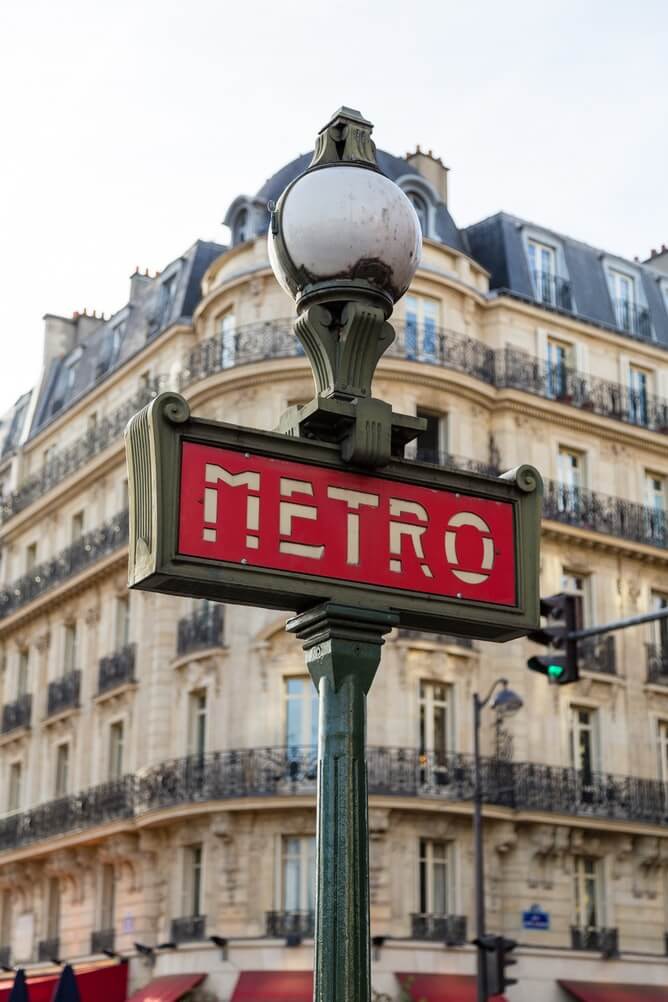
Think about free souvenirs (or non-physical ones)
You know that saying, “collect moments, not things?” It’s definitely true.
While it may be tempting to collect small trinkets throughout your trip, these little expenses add up and also take unneeded space in your bag.
In my experience, the best souvenirs are free, like photos, ticket stubs, etc. You can then buy a cheap travel stub diary like this one once you get home to organize it all. Much more personal than fridge magnets!
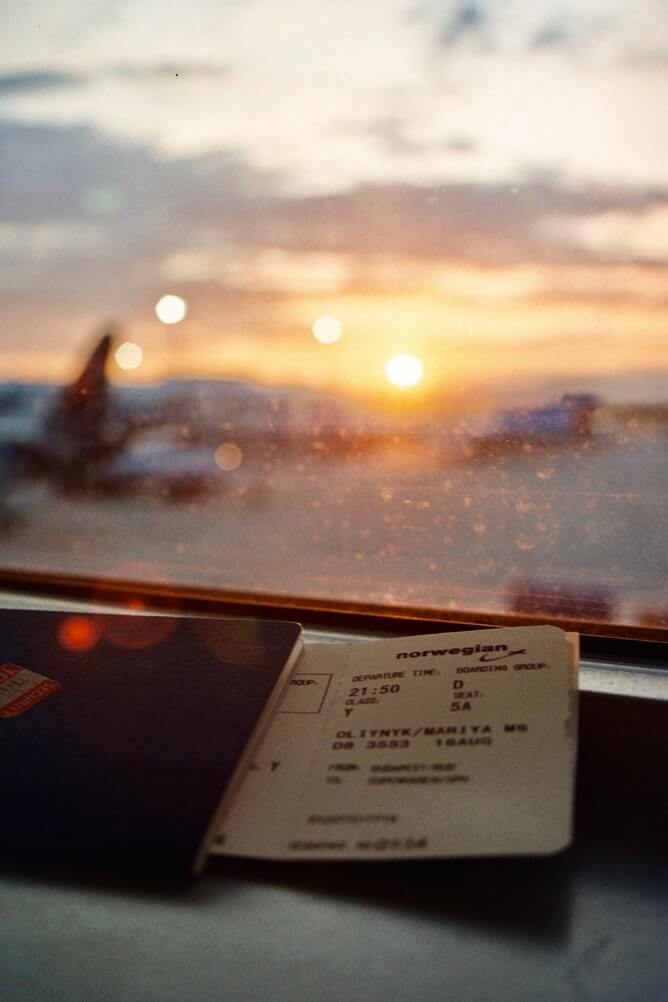
Learn how to haggle
You’ll be amazed at how much money you can save by haggling at markets, particularly in touristy cities where they often inflate the price with the expectation that you’ll haggle it down.
It doesn’t matter what you’re buying, whether it’s clothes or a keychain, you’ll be able to drive the price much lower if you stand your ground.
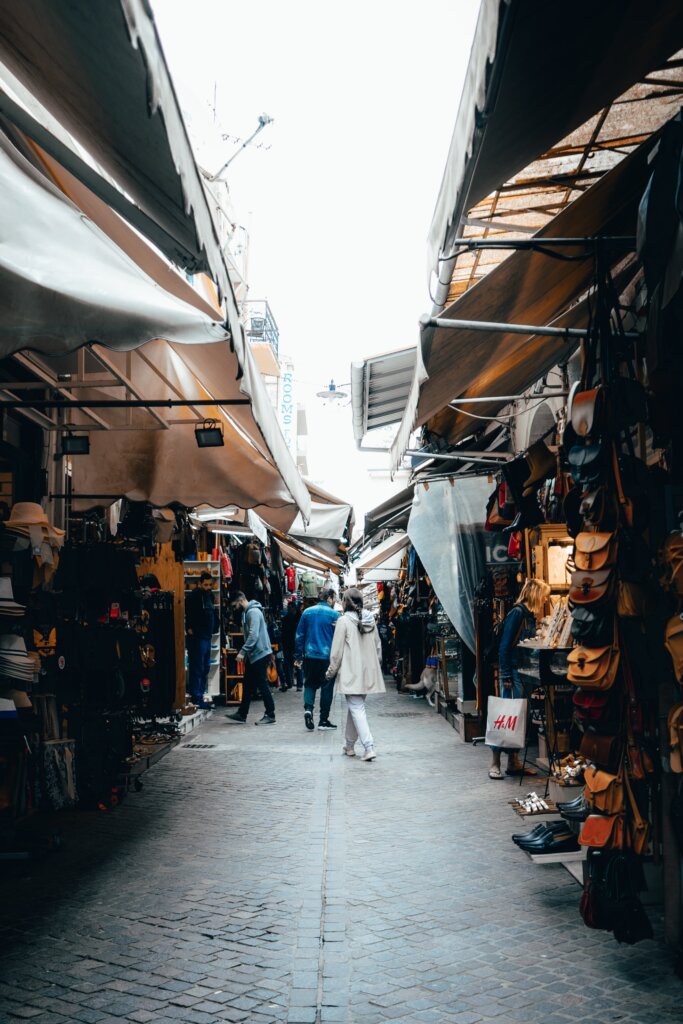
Always have cash and change
Depending on which destinations you visit in Europe, you WILL be charged for things that are usually free in your home country, like for instance going to the bathroom!
In Germany, Switzerland, and Austria for example, it’s common for public restrooms to cost between 50 cents to 1 euro per use… The upside is of course that the facilities are sparkling clean.
So, never rely on cards, make sure you have cash and change on you.
PS: If you’re headed that way, make sure you read my list of must-knows before you travel to Germany… because there’s a lot of very random and hilarious surprises.
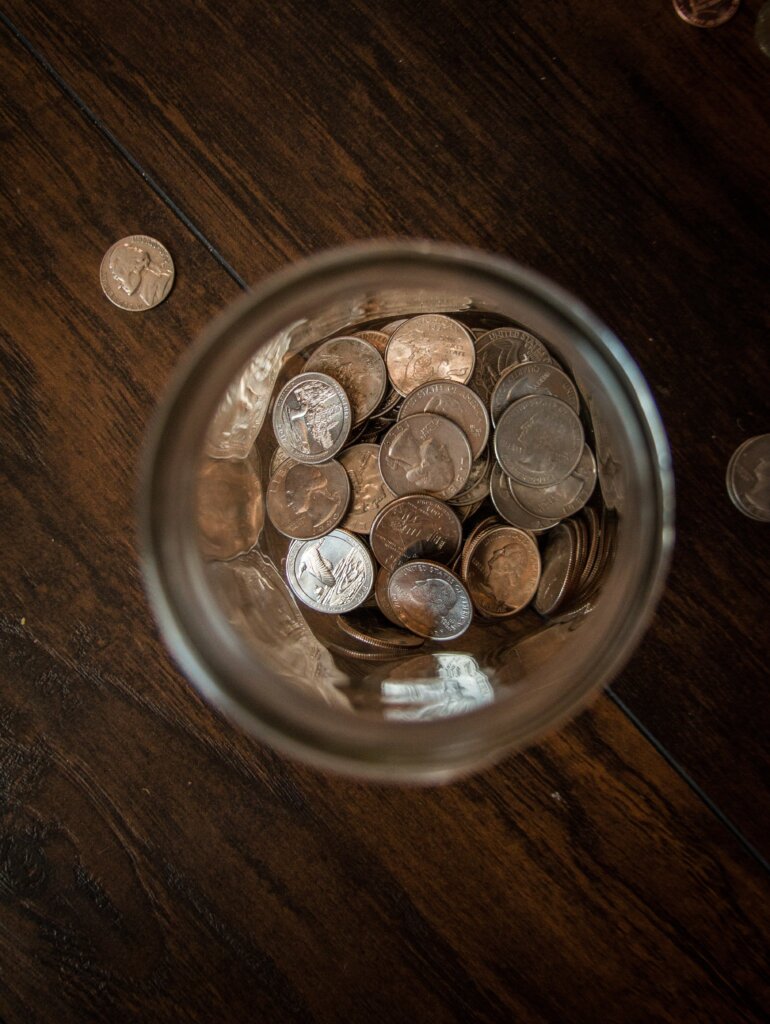
Be friendly and social
This goes without saying, making friends while you travel brings an infinite number of benefits.
One of the most selfish ones being saving money while splitting the cost of supplies and food!
On a more wholesome level though, I’ve met some truly incredible people while backpacking, some of whom have encouraged me to derail my plans, go with the flow, and see some wonderful places I would have otherwise never visited.
All in all, talk to strangers while backpacking Europe. You never know what might happen!
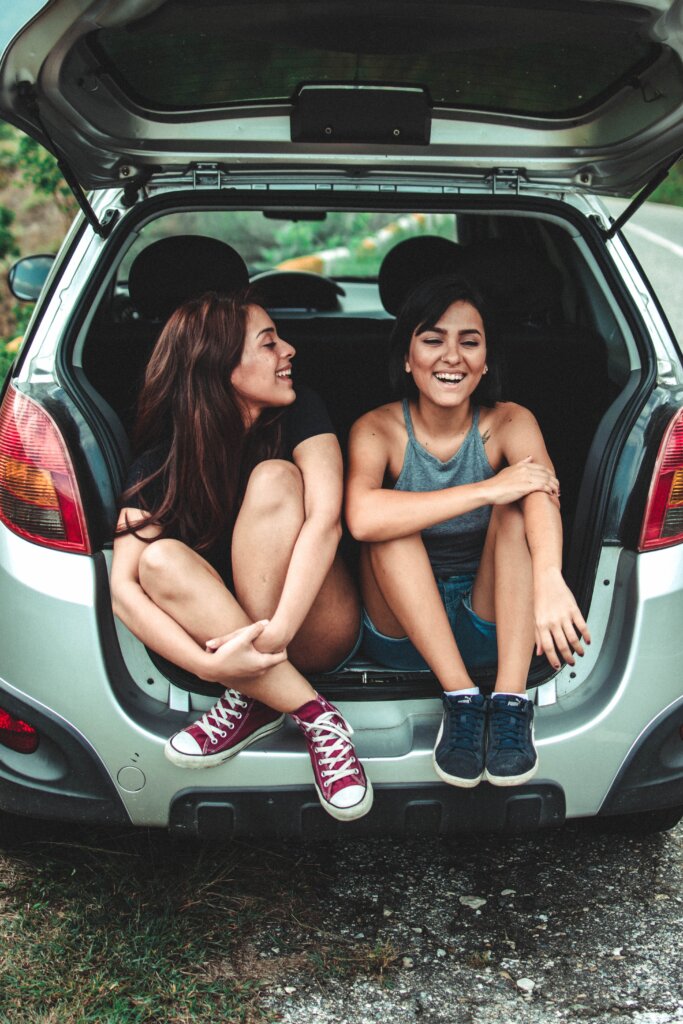
Don’t be afraid to splurge and treat yourself
Last but not least, I know what it’s like backpacking Europe on a budget, that feeling like every penny counts and you’ll never financially recover if you dare pay more than you budgeted for…
But remember, backpacking Europe is a huge bucket list experience! You deserve to treat yourself every once in a while.
At the risk of sounding too “deep”, your money will come back, but your time will not… So definitely treat yourself to some amazing experiences on your bucket list while backpacking Europe, even if they are a bit pricey.
I promise you’ll never regret it.
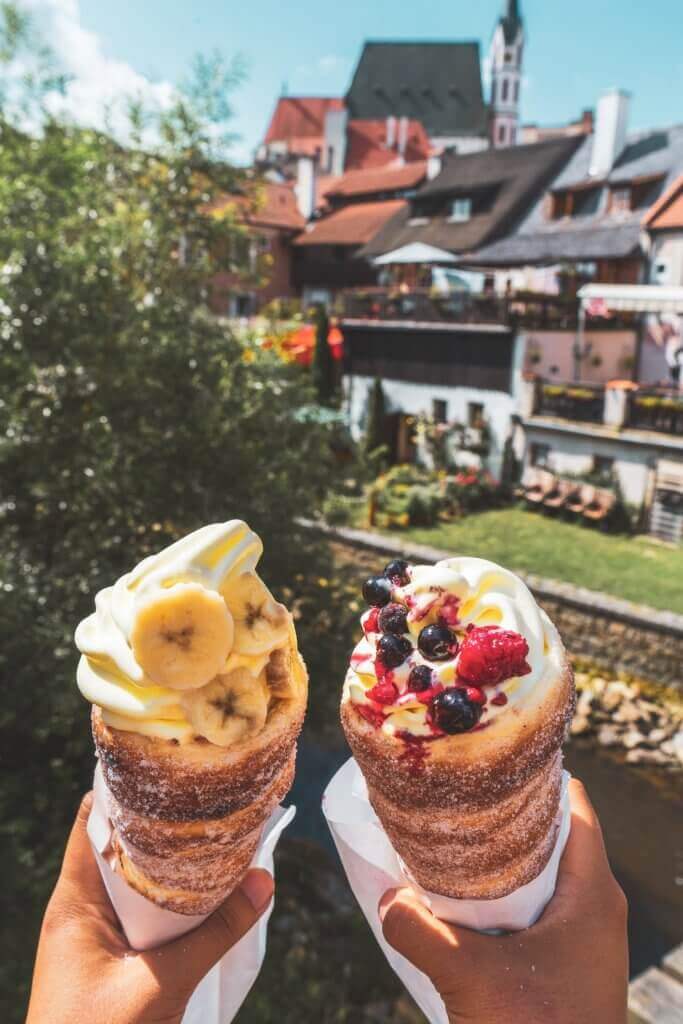
I hope these Europe backpacking tips were helpful!
Let me know in the comments if I missed any tips you’d recommend, or if you have any more questions. Have an amazing trip!

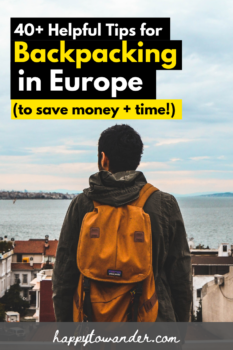
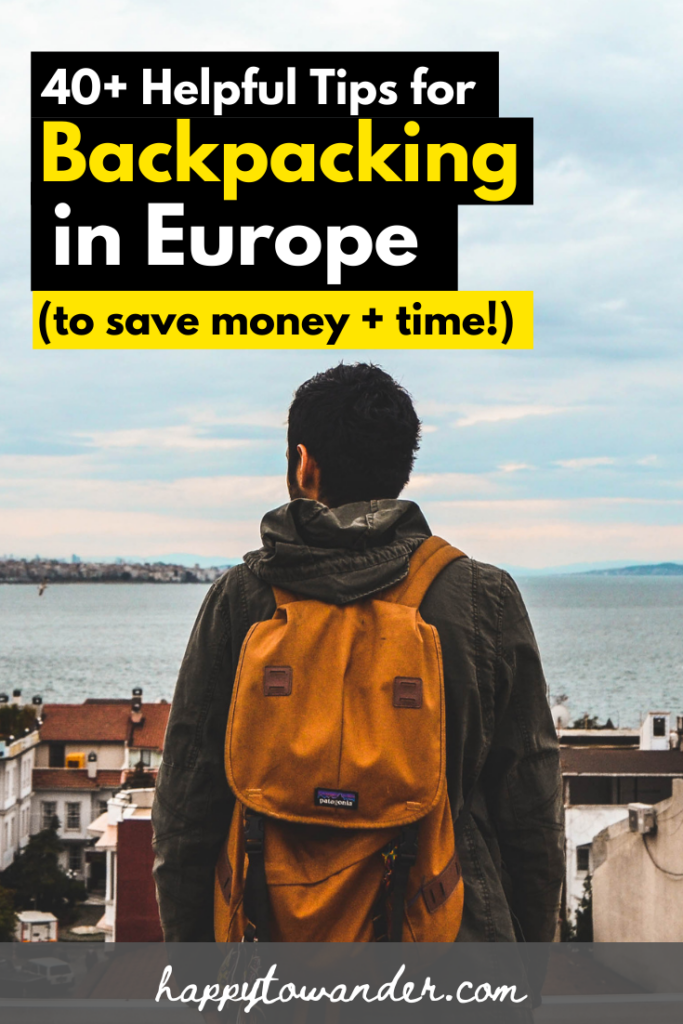
This blog is amazing and informative .These Travel blogs provide practical information and tips that can be incredibly helpful when planning a trip. From accommodation recommendations and transportation options to local insights and budget-saving strategies, travel blogs can offer valuable firsthand knowledge to make your travel planning smoother and more efficient.